Giáo Án Môn Tiếng Anh Lớp 6 Cả Năm Theo Mẫu Mới [2022 – 2023]
>>> Mọi người cũng quan tâm:
Giáo Án Môn Tiếng Anh Lớp 6 Cả Năm Theo Mẫu Mới [2022 – 2023] – Tài Liệu Tiếng Anh là tài liệu học tập được Trang Tài Liệu biên soạn và sưu tầm từ những nguồn dữ liệu mới nhất hiện nay. Tài liệu này sẽ giúp các em luyện tập, củng cố kiến thức từ đó nâng cao điểm số cho môn học. Ngoài ra, cũng giúp các thầy cô giáo có nguồn tài nguyên phong phú để giảng dạy.
Dưới đây là bản đọc trực tuyến giúp thầy cô và các em học sinh có thể nghiên cứu Online hoặc bạn có thể tải miễn phí với phiên bản word để dễ dàng in ấn cũng như học tập Offline.
Week: 1 Date of preparation:August 20th ,2017
Period: 1 Date of teaching : August 21st ,2017
GIỚI THIỆU MÔN HỌC - CÁCH HỌC
I/ Mục tiêu:
- Giúp HS hiểu được môn Tiếng Anh là một ngôn ngữ mà các em sẽ được học kĩ hơn, và là một môn học chính thức ở bậc THCS.
- Giúp HS có cách học môn Tiếng Anh một cách đúng nhất và hợp lí nhất.
- Qui định với các em về sách, vở và các đồ dùng để học môn Tiếng Anh.
II/ Giới thiệu môn học:
1. Cơ sở:
Môn Tiếng Anh được xây dựng trên cơ sở:
-Mục tiêu của bậc THCS do Bộ GD-ĐT qui định.
-Vị trí của môn học đối với sự phát triển chung của toàn xã hội. Là công cụ tạo điều kiện hòa nhập với cộng đồng quốc tế và khu vực, tiếp cận với những thông tin quốc tế về khoa học-kĩ thuật, tiếp cận với những nền văn hóa trên thế giới.
2. Mục tiêu cụ thể:
Học xong bậc THCS các em có thể đạt được những yêu cầu sau:
-Nắm được kiến thức cơ bản, tối thiểu và tương đối hệ thống về Tiếng Anh thực hành hiện đại, phù hợp với lứa tuổi.
-Có kĩ năng cơ bản về sử dụng Tiếng Anh như một công cụ giao tiếp đơn giản dưới các dạng nghe-nói -đọc-viết.
-Hình thành kĩ năng học Tiếng Anh và phát triển tư duy. Những khả năng này sẽ có tác động đến khả năng sử dụng tiếng mẹ đẻ và sẽ đem lại cho các em năng lực ngôn ngữ toàn diện hơn.
III/ Cách học:
1. Kỷ năng:
Vận dụng 4 kỹ năng: NGHE - NÓI - ĐỌC - VIẾT
2. Phương tiện:
- SGK T.A 6, Sách BT, vở ghi.
- Băng ghi âm, máy nghe
- Tranh ảnh...
Week: 1 Date of preparation:August 21st ,2017
Period: 2 Date of teaching : August 22nd ,2017
Unit 1 : GREETINGS
Division of lessons
Lesson 1 : A1,2,3,4
Lesson 2: A5,6,7,8
Lesson 3: B1,2,3,4
Lesson 4: C1,2,3,4
-----------------------------------------------------------------------------
Lesson 1: HELLO (A1-2-3-4 )
I/ Objectives:
By the end of the lesson,students will be able to greet each other and identify oneself.
II/ Language contents:
a. Grammar : Hello/Hi.
I am Lan/ My name is Lan.
b. Vocabulary: Hello , Hi , I ,I am=I’m, my , name,is,am .(My name is...)
III/ Techniques: groupwork, pairwork, individual work.
IV/Teaching aids : textbook, cassette, pictures, colored chalks.
V/ Procedures:
Teacher ’ s / students ’ activities |
Contents |
+ Sets the situation : T: Các em thường làm gì khi gặp nhau ? Ss: Chúng em chào nhau. T: Các em nói thế nào khi chào nhau ? Ss “ Xin chào “ T: Các em làm gì khi làm quen nhau ? Ss: Chúng em giới thiệu tên mình. T: Các em giới thiệu như thế nào ? Ss: Tôi là/Tên tôi là … +Tells what is going on in the lesson : greeting each other and introduce oneself. II_NEW LESSON : Activity1: T : teach vocabulary : Read the new words . Ss :Listen and repeat T : Write the new words on the board Ss :Write them down Read individually T : Read and ask sts to repeat Ss : work in pairs Activity2: T : Ask Ss to say Hello / Hi to their classmates Ss : work in pairs
Activity3: T : Ask sts to play the role of Lan, Nga, Ba, Nam to read the sentences to introduce their name . Ss : read
Activity4: T : ask sts to introdure their name to the class Ss : work in group
III . CONSOLIDATION: T: Asks Ss to write in order to introduce their name. Ss : work in pairs T : Asks Ss to match A with B Ss : match T : Ask sts to fill in each blank with one suitable word Ss : Work in group.
IV : HOMEWORK: T: Remark the lesson and give homework.
|
1.Warm up:
A1: Listen and repeat
_Hello / Hi : Xin chào ( situation ) Hi :(được dùng để chào bạn)
A2: Practice: S1: Hello S2 :Hello
S3 :Hi S4 :Hi / Notes: Chào thân mật Hello / Hi + teân A3: Listen and repeat I am Lan I am Nga My name is Ba My name is Nam Cách giới thiệu tên mình I am/ I’m + tên mình = My name is / My name’s + tên mình I : tôi ( situation + example ) my : của tôi ( situation + example) name :tên (situation + example) am=’m , is =’s : là,thì (situation + example) I am/I‘m Lan: Tôi là Lan = My name is / My name’s Lan : tên của tôi là Lan A4: Practice with a group:
I am ……… My name is ………
A B 1) I am Minh . a) Xin chào.
3) My name is Minh c) Tôi là Minh
1) I ____________ Hoa .
|
VI. Comment
****************************************
Week: 1 Date of preparation:August 22nd ,2017
Period: 3 Date of teaching : August 23th ,2017
Unit 1 : GREETINGS
Lesson 2: HELLO (A5,6,7,8 )
I/ Objectives:
By the end of the lesson,students will be able to ask for and say the health .
II/ Language contents:
a. Grammar : How are you ? _ I’m fine , thanks. And you ?
b. Vocabulary: how , you , are, And you? fine , thanks, Miss, Mr.
III/ Techniques: pairwork, individual work.
IV/ Teaching aids : textbook, cassette, pictures, colored chalks.
V/ Procedures:
Teacher ’ s / students ’ activities |
Contents |
|||||
I_ WARM UP: WORK GAME T: Explain the game and give the clue Ss: Listen end guess the word T: Give the questions ( in vietnamese ) Ss: Answer ( in vietnamese) T: Lead to new lesson. II_ NEW LESSON : Activity1: T: -teach vocabulary : Read the vo 3 times ,then ask sts to repeat . Ss: Listen and repeat T: Call on some sts to read again Ss: Read individually Ss: Coppy down
T: -Vocabulary checking : ( matching ) T: Presents the structures:.
T: -Ask Ss to listen to the dialogue.. - Ask Ss to listen and repeat each sentence . Ss: Repeat in chorus T: Ask Ss to practice speaking . Ss: Pair work T: Ask Ss to role-play in front of the class. Ss: Role play of Ba and lan. T: Correct if any. Activity2: T: Ask sts to work in pairs , play the role of Miss Hoa and Mr Hung ; Nam and Lan to make the similar dialogues Ss: Work in pairs T: Call on some pairs to perform in front of the class Ss: Open pair work Activity3: T: Ask sts to work in pairs to complete the dialogue between Nam and Lan . Ss: Pairwork T: Call on some pairs to perform in front of the class Ss: Open pairwork T: Ask sts to write the dialogue on their notebook Ss: Write Activity 4: T: Review.
III_ CONSOLIDATION : T: Asks Sts to put the sentences into a dialogue. Ss: Pairwork
T: Asks Ss to complete the open dialogue. Ss: Individually
IV_ HOMEWORK: T: Remark the lesson and give homework.
|
* Instruction:” Các em sẽ đoán từ.Từ này có 5 kí tự. Các em thường dùng từ này để chào khi gặp nhau”
- Các em thường nói gì sau khi chào nhau ? - Hỏi thăm sức khỏe.
A5: Listen and repeat _how : thế nào ( situation + example ) _ are: là , thì ( situation + example ) _ and : và , còn (translation ) _ you : bạn , mày ( situation + example ) _ fine: khỏe( translation ) _ thanks = thank you: cảm ơn ( translation) _How are you?:Bạn có khỏe không? _I’m fine,thanks =Fine, thank you :Tôi khỏe,cảm ơn: Notes: Hỏi thăm sức khỏe: How are you ? Nói sức khỏe I’m fine , thanks
Ba: Hi, Lan . Lan: Hello , Ba . Ba: How are you ? Lan: I’ m fine, thanks . And you ? Ba: Fine , thanks
A6: Practice with a partner Miss: Cô (chưa lập gđ) Mr: ông, thầy. Miss Hoa: ………………… Mr Hung: …………………
Nam: ……………………. Lan: ……………………..
A7: Write in your exercise book
Nam: Hello, Lan. How are you? Lan: Hi, I’m fine, thanks.
A8/ Remember: Hello/Hi. My name is... / I am ... How are you? I’m fine, thanks. I am =I’m _ How are you? _ Hello, Phong. _ Fine , thanks. _ Hi, Thu. _ I’m fine, thanks. And you ?
_ Hello, Minh. _ _____, Dung. _ __________________ ? _ I’m fine, thanks. And you ? _ _____ , thanks.
*Homework: - Learn the lesson carefully . - Do exercises 3,4 in workbook. - Prepare B1,2,3,4,5,6 for next period |
VI. Comment
**************************************************************************
Week: 2 Date of preparation:August 27th ,2017
Period: 4 Date of teaching : August 28th ,2017
Unit 1 : GREETINGS
Lesson 3: HELLO (B1,2,3,4 )
I/ Objectives:
By the end of the lesson,students will be able to greet people in other ways .
II/ Language contents:
a. Grammar : expressions used to greet people and to say goodbye.
b. Vocabulary: Good morning , Good afternoon , Good evening , Goodbye / Bye , Good night, we are,
we’re, we are childrend.
III/ Techniques: pairwork, individual work.
IV/ Teaching aids : textbook, cassette, pictures, colored chalks.
V/ Procedures:
Teacher ’s / students ’ activities |
Contents |
I_WARM UP: T: Call some pairs of sts go to the board, then ask them to make dialogues:to greet, to introduce their names, to ask how they are and to say thank you. Sts: Do as T’s ask. T: Correct if any and give marks. II_NEW LESSON: Activity1: T: -teach vocabulary : Ss: Listen and repeat
Ss: Copy down T: Vo checking : ( matching )
T: Presents the structures: T: Give example and explain the structures
Activity2: T: Ask Ss to practice speaking . Ss: Pair work
Activity3: T: Ask Ss to Ss listen to the dialogue.. Ask Ss to listen and repeat each sentence . Ss: Repeat in chorus
T: Ask Ss to practice speaking . Ss: Pair work
T: Ask Ss to role-play in front of the class. Ss: Role play of Miss Hoa and children ; Mom and Lan Activity4: T: Ask sts to work in pairs to complete the dialogue between Lan and Nga Ss: Pairwork T: Call on some pairs to perform in front of the class Ss: Open pairwork T: Ask sts to write the dialogue on their notebook. Ss: Write III_ CONSOLIDATION : T: Ask Ss to complete the open dialogue . Ss:Pair work .
T: Give some questions to check sts’understanding.
IV_ HOMEWORK : T: Remark the lesson and give homework.
|
Ex: A: Hi/Hello. I’m........A............. B: Hi/Hello. I’m.........B............ A: How are you? B: I’m fine, thank you. And you? A: Fine, thanks.
B1: Listen and repeat _morning (n):buổi sáng _afternoon (n):buổi chiều _evening (n):buổi tối (picture) _we (pr):chúng tôi(translation) _Good morning / afternoon / evening:Xin chào _Good bye = Bye: Tạm biệt _Good night: Chúc ngủ ngon _ We’re fine , thank you ; Chúng em khỏe, cảm ơn cô . Notes: _ Chào người lớn tuổi Goodmorning/afternoon/evening,Mr/Mrs/Miss+tên
B2: Practice with a partner Good morning Good afternoon Good evening Good night
B3: Listen and repeat a) Miss Hoa: Good morning, children. Children: Good morning, Miss Hoa . Miss Hoa: How are you ? Children: We’re fine,thank you. How are you ? Miss Hoa: Fine,thanks. Good bye Children: Bye
B4: write
Lan: Good afternoon, Nga . Nga: …………………… , ……. . Lan: How are you ? Nga: ……………. , ……….. . Lan: ……….. ? Nga: Fine,thanks . Lan: Good bye Nga: ........... .
Trinh : Good afternoon, Miss Loan. Miss Loan: …………………….. , Trinh. Trinh : ……………………………..? Miss Loan : I’m fine, ………………. . And you? Trinh : Fine , thanks. ……… . Miss Loan : Bye -Em chào nhau như thế nào khi gặp nhau vào buổi sáng/ chiều/ tối? -Em nói như thế nào khi chào tạm biệt ai ? -Ta chúc như thế nào ttrước khi đi ngủ? *Homework: - Learn the lesson carefully. - Do exercises: 1,2,3 in workbook. - Prepare part C1,2 for next lesson. |
VI. Comment
**********************************
Week: 2 Date of preparation:August 28th ,2017
Period:5 Date of teaching : August 29th ,2017
Unit 1 : GREETINGS
Lesson 4: How old are you? (C1,2,3,4 )
I/ Objectives:
By the end of the lesson,students will be able to count number from 1 to 20.
Students will be able to introduce oneself and others, say how old one is.
II/ Language contents:
a. Grammar : one and two is three, three minus two is one.
This is ....... _ How old are you ? _ I’m .... .
b. Vocabulary: numbers from 1 to 20, and minus.this is, how old, years old
III/ Techniques: pairwork, individual work.groupwork
IV/ Teaching aids : textbook, numbers, colored chalks.
V/ Procedures:
Teacher ’ s / students ’ activities |
Contents |
I_WARM UP: T: Ask Ss to distinguish the significance of series of figures below Ss: Listen T: Tell what is going on in the lesson : cardinal numbers from 1 to 20. II_NEW LESSON : Activity 1: T: _teach vocabulary : one _ twenty ( figures ) 2_Vocabulary checking : (slap the board)
Activity 2: T: Ask sts to practice counting from one to twenty with a partner in many ways. Maybe: -count in turn from 1 to 20: 1,2,3,...20 -count event numbers: 2,4,6,8,......20 -count odd numbers: 1,3,5,7.....19 Ss: Pair work Free practice: T.ues flash cards and ask sts to read aloud the numbers in it.
Activity 3: T: -teach vocabulary :
-Presents the structures:
. T: -Ask Ss to Ss listen to the dialogue.. - Ask Ss to listen and repeat each sentence . Ss: Repeat in chorus T: Ask Ss to practice speaking . Ss: groupwork. Activity 4: T: Ask sts to ask for their classmates’ age . Ss: Work in pairs. T: Have some pairs practice aloud.
III_CONSOLIDATION : T: Ask Ss to say the following numbers : Ss: Whole class T: Ask Ss to listen and cross the numbers they hear Ss: Pair work T: Ask Ss to complete the open dialogue. Ss: pair work IV_ HOME WORK: T: Remark the lesson and give homework .
|
837 124 ( telephone number ) 469 Le Loi Qui Nhon ( address )
C1: Listen and repeat 1 : one 11 : eleven 2 : two 12 : twelve 3 : three 13 : thirteen 4 : four 14 : fourteen 5 : five 15 : fifteen 6 : six 16 : sixteen 7 : seven 17 : seventeen 8 : eight 18 : eighteen 9 : nine 19 : nineteen 10 : ten 20 : twenty C2:Practice
@ Cross the numbers you hear
3 12 6 9 20 1 13 8 5 4 15 11 7 2 0 10
C3: Listen and repeat _this is: đây là _How old : mấy tuổi _years old: tuổi
_ This is Lan : đây là Lan . _ How old are you ?: Bạn mấy tuổi? _ I’m eleven : tôi 11 tuổi. : Notes: Giới thiệu người hoặc vật khác ở gần mình: This is + N Hỏi tuổi : How old are you ? Nói tuổi I’m + số đếm.
C4/ Practice :
Thu :_ Good morning , Miss Nga. Miss Nga :_ ______________, Thu . Thu : _ Miss Nga , _____________ Loan . Miss Nga :_ Good morning , Loan . _______? Loan :_ ___________ twelve.
*Homework: - Learn by heart the cardinal numbers from one to twenty. -Do exercise 1,2,3,4 in workbook. -Prepare Unit 2-part A |
VI. Comment
********************************************
Week: 2 Date of preparation: 29/08/ 2017
Period:6 Date of teaching : 31/08/ 2017.
Unit 2 : AT SCHOOL
Division of lessons
Lesson 1 : A1,2,4
Lesson 2: B1,3
Lesson 3: B4,5,6
Lesson 4: C1
Lesson 5: C2,3,4
------------------------------------------------------------------------
Lesson 1: Come in (A1,2,4 )
I/ Objectives:
By the end of the lesson,students will be able to understand and use simple commands in class.
II/ Language contents:
a. Grammar : Come in!, sit down!
b. Vocabulary: come in, sit down, stand up, open your book, close your book.
III/ Techniques: groupwork, pairwork, individual work.
IV/ Teaching aids :textbook, cassette, chalks, pictures.
V/ Procedures:
Teacher ’ s / students ’ activities |
Contents |
I_WARM UP: T: Ask Ss to obey orders ( in actions such as standing up , sitting down , opening the book and closing the book ) T: Ask Ss to guess the aim of the lesson T: Tell what is going on in the lesson: giving and obeying order. II_NEW LESSON: Activity 1: T: Teach vocabulary:
Ss: Listen and repeat T: Call on some sts to read again Ss: Read individually Ss: Coppy down Vocabulary checking :(slap the board)
T: Give example and explain the structures Ss : listen and write it down
Activity 2:
T: Ask sts to look at the pictures and then read the commands Ss: Look at & read T: Ask sts to match the commands with the pictures Ss: pairwork
Activity 3: T: Ask Ss to do as T does and to say as T says after the sentence
III_ CONSOLIDATION :( HOT SEAT) T: use hands to mime while asking sts read aloud the word which T is miming. Sts: Do as T’s ask. T: Correct if it’s necessary. IV: HOME WORK: Remark the lesson and give homework.
|
A1: Listen and repeat . Then practice with a partner:
_Stand up :hãy đứng dậy (action ) _Sit down: hãy ngồi xuống ( action ) _Open your book:hãy mở sách ra (action ) _Close your book.:hãy gấp sách lại (action) _Come in :mời vào ( action )
_ positive imperative: Open your book.
A2: Match and write:
Open your book Sit down
Come in
Close your book Stand up
A4/ Remember:
Come in. Close your book. Sit down. Stand up. Open your book.
*Homework: - Learn the commands by heart . -Do exercises: 1,2 in workbook. -Prepare part B1,2 for next lesson. |
|
|
VI. Comment
**************************************************************************
Week: 3 Date of preparation:September 3rd, 2017
Period:7 Date of teaching : September 4th, 2017
Unit 2 : AT SCHOOL
Lesson 2: Where do you live? (B1,3 )
I/ Objectives:
By the end of the lesson,students will be able to ask and answer about personal information such as: name, age, address.
II/ Language contents:
a. Grammar : -What is your name ? How old are you?_ Where do you live ? I live on......street.
b. Vocabulary: you-your, I-my, where, what, live, street, city, on
IV/ Techniques: pairwork, individual work.
IV/ Teaching aids : textbook, cassette, chalks, pictures.
V/ Procedures:
Teacher ’ s / students ’ activities |
Contents |
||||||||||||||||||||||||||||||
I_WARM UP: BRAINSTORM T: Ask Ss to tell something about personal information . ( name , age , address , grade , school ) Ss: Whole class T: Tell what is going on in the lesson : asking for and giving personal information.
II_ NEW LESSON Activity 1: T: Teach vocabulary :
Ss: Listen and repeat. T: Call on some sts to read again Ss: Read individually
T: Write on the board Ss: Coppy down Vocabulary checking : ( matching ) T: Ask Ss to Ss listen to the dialogue and repeat each sentence
T: Ask Ss to practice speaking . Ss: Pair work T: Ask Ss to role-play in front of the class. Ss: Open pair work Activity 2:
T: Read each letter in the English Alphabet and ask sts to repeat. Ss: Repeat in chorus T: Asks Ss to Ss listen and repeat each consonant and vowel. Ss: Listen and repeat
T: Ask Ss to spell and pronounce the
III_ CONSOLIDATION : T: consolidate new words and some model sentences.
IV: HOME WORK: T: Remark the lesson and give homework.
|
STUDENT
FORM Name
: Cao Quang Nam .( What )
Age
: 12 ( How old ) Address
: 95 Tran Phu Street ( Where )
B1: Listen and repeat . Then practice the dialogue with a partner _what : gì , cái gì What’s = what is What is your name?:tên của bạn là gì ? I am...................... My name is.................... _ on ( prep ) : tại _in (prep): tại _ street ( n ) : đường phố _ where : ở đâu _ live ( v ) : sống ( translation ) Where do you live ? :bạn sống ở đâu ? e.g:I live on Tran Phu Street in Qui Nhon _house: ngôi nhà _city: thành phố
B3: Listen and repeat .
name, how , thanks , what, where, morning, afternoon, evening, close, open, eleven
*Homework: - Learn the new words by heart . -Do exercises: 3,4 in workbook. |
VI. Comment
**********************************************
Week: 3 Date of preparation:September 4th, 2017
Period:8 Date of teaching : September 6th, 2017
Unit 2 : AT SCHOOL
Lesson 3: Where do you live? (B4,5,6 )
I/ Objectives:
By the end of the lesson,students will be able to practice spelling their names.
II/ Language contents:
a. Grammar : - How do you spell your name? - It’s B-A,Ba.
b. Vocabulary: to spell.
III/ Techniques: pairwork, individual work.
IV/ Teaching aids : textbook, cassette, chalks, pictures.
V/ Procedures:
Teacher ’ s / students ’ activities |
Contents |
I_ WARM UP: T: Show each letter and asks “ What ‘s this ? “ T: Tell what is going on in the lesson : asking someone to spell a word , reviewing question words II_ NEW LESSON ACTIVITY 1 : 1-Pre-teach vocabulary : T: Teach vocabulary .
T: Call on some sts to read again Ss: Read individually and copy down.
T: Ask Ss to Ss listen to the dialogue.. T: Ask Ss to listen and repeat each sentence Ss: Whole class T: Ask Ss to practice speaking . Ss: Pair work T: Ask Ss to role-play in front of the class. Ss: Open pair work ACTIVITY 2 : T: Ask Ss to give personal information by answering the questions. Ss: Work in pair T: Aks sts to write the answers in the exercise book. Ss: Write down. ACTIVITY 3 : T: Presents the structures: T: Give example and explain the structures Ss : listen and write it down T : Read and ask sts to repeat
III_ CONSOLIDATION : T: Aks some sts about their information to consolidate the lesson. Sts: Answer.
IV: HOME WORK: T: Remark the lesson and give homework.
|
e.g : T ( showing the letter “a” ) _ What’s this ? S ( saying ) _ A / ei /
B4: Listen and repeat.Then practice spelling your name with a partner.
_ spell (v ) : đánh vần( example ) , _ it ( pr ) : ( example + translation )
Nếu yêu cầu ai đó đánh vần tên/từ mà mình chưa nghe rõ, ta sử dụng mẫu câu sau: How do you spell your name? it?
B5: Write the answers in your exercise book a, What ‘s your name ? b, How do you spell your name ? c, How old are you ? d, Where do you live?
B6: Remember What ’ s your name? What’s …= What is.. My name’s .. = My name is … Where do you live ? I live in /on … … … How do you spell … … … … ?
*Homework: Learn the lesson carefully . Do exercises 5,6 in workbook Prepare part C1 for next lesson. |
VI. Comment
Week: 3 Date of preparation:September 5th, 2017
Period:9 Date of teaching : September 7th, 2017
Unit 2 : AT SCHOOL
Lesson 4: My school (C1)
I/ Objectives:
By the end of the lesson,students will be able to ask and answer about school or about someone.
II/ Language contents:
a. Grammar : - Is this your desk? Yes, it is
- Is that your teacher? Yes, that’s my teacher.
b. Vocabulary: that’s = that is, school, class, desk, classroom...
III/ Techniques: pairwork, individual work.
IV/ Teaching aids : textbook, ,cassette, chalks, pictures
V/ Procedures:
Teacher ’ s / students ’ activities |
Contents |
I_ WARM UP: T: Ask sts to play a game Give the three clues; Ss: Listen and guess “What word it is” T: Tells what is going on in the lesson : identify places , people and objects II_ NEW LESSON: Activity: 1 T: Teach vocabulary .
Ss: Copy down. _Vocabulary checking: (what and where )
ACTIVITY 2 : T: Presents the structures: T: Give example and explain the structures Ss : listen and write it down
ACTIVITY 3 : T: Ask Ss to listen to the dialogue.. Ss: Listen T: Ask Ss to listen and repeat each sentence . Ss: Repeat in chorus T: Ask Ss to practice speaking Ss: Open pair work T: Ask Ss to role-play in front of the Class Ss: Close pair
III_ CONSOLIDATION: T: Ask Ss to put the words into their correct order to make a complete sentence. Ss: Read and put them in the correct Order. T: Ask sts to complete the blanks with the correct letters Ss: Work in groups of four
IV/ HOME WORK: T: Remark the lesson and give homework.
|
Secret Word ( What word is it ? ) Clues: 1- Nơi đây là một địa điểm. 2- Hầu như mọi người đều đi đến đó khi còn nhỏ. 3- Giáo viên làm việc tại nơi này. C1: Listen and repeat.Then practice the dialogue with a partner. vocabulary : _school (n) : trường học ( picture ) _classroom (n) : phòng học (picture ) _ desk ( n ) : bàn học (realia) _ teacher (n) : giáo viên ( example ) _ class (n) : lớp học (translation ) _ student ( n ): học sinh ( example ) _ yes : vâng ( miming ) _ no : không ( miming ) *This is + N Được dùng để giới thiệu người hoặc vật ở gần mình. *That is + N Được dùng để giới thiệu người hoặc vật ở xa mình. _ This is my school . _ That is your book. @Yes- no question: _ Is + this / that …….........................… ? Answer : Yes / No ……………………. _ Is this your desk ?
Backwards dictation 1, Student a am I . 2, School my is this. 3, Teacher your this is ? 4, Classroom my is that .
First and last letter dictation 1, I’m a s_ _ _ _ _ t . 2, T_ _ s is my s_ _ _ _ l . 3, T_ _ t is my c_ _ _ _ _ _ _ m .
*Homework: -Learn the new words + structures by heart . -Do exercise: 2 in workbook. -Prepare C2,3,4 for next period. |
VI. Comments
**************************************
Week: 4 Date of preparation:September 10th, 2017
Period:10 Date of teaching : September 11th, 2017
Unit 2 : AT SCHOOL
Lesson 5: My school (C 2-3-4)
I/ Objectives:
By the end of the lesson,students will be able to ask and answer about things in class and about school.
II/ Language contents:
a. Grammar : - What is this?/ What is that? - It’s a/an..........
b. Vocabulary: door, windown,board, clock, waste basket, school bag, pen, pencil,ruler, eraser.
III/ Techniques: pairwork, individual work.
IV/ Teaching aids : textbook, cassette, chalks, pictures
V/ Procedures
Teacher ’ s / students ’ activities |
Contents |
|||
I_ WARM UP: T: Ask sts some questions about personal information Ss: Answer T: Aks Ss to look at the objects in the classroom Ss: Look at them II_ NEW LESSON: ACTIVITY1 : T: Teach vocabulary .
Ss: Coppy down
_Vocabulary checking: ( Slap the board )
ACTIVITY2 : T: Presents the structures: T: Give example and explain the structures Ss : listen and write it down T: Ask Ss to practice asking and answering about the objects in the classroom Ss: Work in pair T: Call on some pairs of students to perform in front of the classroom Ss: Open pair
ACTIVITY 3: T: Review. Sts: Listen - Answer.
III_ CONSOLIDATION: T: Let sts repeat new words and structures once more.
IV: HOME WORK: T: Remark the lesson and give homework.
|
_ What is your name ? _ How old are you ? _ Where do you live ?
C2/ Listen and repeat:
a door a window
a board a clock
a waste basket a school bag
a pencil a pen
a ruler an eraser
a desk a classroom C3/ Practice with a partner : Hỏi vật ở gần:
Hỏi vật ở xa:
S THAT? Trả lời:
Ex: What is this ? It ‘s a door ( point the door ) C4/REMEMBER What is this ? What is that ? It’s a /an … … This is … … That is … … This is my school . That is my desk .
*Homework: -Learn the new words + structures by heart . -Do exercises: 1,3 in workbook. -Prepare Unit 3- A1,2 for next period.
|
VI. Comments
****************************************
Week: 4 Date of preparation:September 11th, 2017
Period:11 Date of teaching : September 12th, 2017
Unit 3 : AT HOME
Division of lessons
Lesson 1 : A1,2
Lesson 2: A3
Lesson 3: A4,6
Lesson 4: B1,2
Lesson 5: B3,4,5,6
Lesson 6: C1,2,4
------------------------------------------------------------------------
Lesson 1: My house (A1,2)
I/ Objectives:
By the end of the lesson,students will be able to identify some objects in the living- room and ask - answer about them.
II/ Language contents:
a. Grammar : _ What’s this/ that ? _ What are these / those ?
_ It’s a clock / an eraser. _ They are chairs
b. Vocabulary: house, living room, table, chair, armchair, couch, stool, telephone, bookshelf, lamp, television, stereo, these, those.
III/ Techniques: pairwork, individual work.
IV/ Teaching aids : textbook, cassette, chalks, pictures, realia.
V/ Procedures
Teacher ’ s / students ’ activities |
Contents |
||||||||||||||||||||||||||||||||||||||||||||||||||||||||||||||||||||||||||||||||||||||||||||||||||||
I_ WARM UP:
WORDSQUARE
_ Tell what is going on in the lesson : identifying things in the living-room.
II_ NEW LESSON : ACTIVITY1:
T: Ask Ss to listen to the tape. Ss: Listen T: Ask Ss to listen and repeat word by word. Ss: Repeat in chorus T: Ask Ss to practise pronouncing all the words. T: Ask Ss to name some objects . Vocabulary checking : (matching )
ACTIVITY2 T: Show the picture to the Ss and explain what they have to do in this exercise. Ss: Listen and get.
T_ Presents the structures: T: Give example and explain the structures Ss : listen and write it down
III_ CONSOLIDATION: T: Have a student point at an object and ask What’s this / that ? and What are these / those ?and the other answers . Ss: Work in pairs T: Ask some pairs of Ss to perform in front of the class Ss: Open pair work IV: HOME WORK:
T: Remark the lesson and give homework.
|
W
A
S
T
E
B
A
S
K
E
O
L
N
R
U
L
E
R
O
T
D
P
U
L
O
A
B
R
I
L
N
O
E
O
Z
O
O
A
L
O
I
N
H
N
A
T
A
N
G
N
W
C
M
U
C
T
R
P
C
E
S
L
O
E
X
I
D
E
S
K
D
O
O
R
F
E
L
N
R
E
O
C
L
A
Y
W
I
G
O
T
T
K
O
S
E
R
U
H
J
S
A1: Listen and repeat
Vocabulary _ house ( n ): ngôi nhà (picture) _ living-room ( n : phòng khách (picture) _ stereo ( n ): máy nghe nhạc (picture) _ table ( n ) : cái bàn ( realia ) _ telephone ( n ): máy đth (realia) _ bookshelf ( n ): giá sách (picture ) _ couch (n) : ghế sa - lông dài (picture) _ television (n) : vô tuyến truyền hình (picture) _ armchair(n) : ghế sa-lông (picture) _ chair ( n ) : ghế tựa (realia) _ lamp ( n ) : cái đèn bàn (realia) _ stool (n) : ghế đẩu A2: Listen and repeat
- Grammar @ _Hỏi một vật ở gần/xa mình: What ‘ s this / that ? _Trả lời : It’s a/ an + tên đồ vật. @ _ Hỏi nhiều vật ở gần/xa mình : What are these / those ? _Trả lời : They are + tên đồ vật
a/ What is this ? It is a lamp b/ What are these ? They are armchairs c/ What are those ? They are stools
*Homework: -Learn the lesson carefully. -Do exercises: 1,2 in workbook. -Prepare A3,4,5,6 for next period |
VI. Comments
*****************************************
Week: 4 Date of preparation:September 12th, 2017
Period:12 Date of teaching : September 13th, 2017
Unit 3 : AT HOME
Lesson 2: My house (A3)
I/ Objectives:
By the end of the lesson,students will be able to play role of Ba to tell about the family, then ask-answer about Ba’s family through Qs: name, age, career.
II/ Language contents:
a. Grammar : _ Who’s this/ that ? _ What’s her name? - her name is Nga
_ How old is she? - She’s....
b. Vocabulary: family, people, father , mother, brother, sister, her, his , how many, too.
III/ Techniques: pairwork, individual work.
IV/ Teaching aids : textbook, cassette, chalks, pictures,
V/ Procedures:
Teacher ’s / students ’ activities |
Contents |
I_ WARM UP: ( Family tree ) T: Set the situation : ( Asks Ss to look at the cues and guess the topic ) Ss: look at the picture and answer the question.
_ Tells what is going on in the lesson : talk about family members.
II_ NEW LESSON :
ACTIVITY 1:
T: Teach new words.
Vocabulary checking : (matching )
_Present the structures: T: Give example and explain the structures Ss : listen and write it down T: Ask Ss to Ss listen to the text. Ask Ss to listen and repeat sentence by sentence. Ss: Repeat in chorus T: Ask Ss to practise reading the text. Ask some Ss to read the text . ACTIVITY 2:
T: Consolidate the grammar notes Ss: Listen and get
III_ CONSOLIDATION: _ Ask Ss to write the sentences with the cues from the family tree.
IV: HOME WORK Remark the lesson and give homework.
|
Mr Ha Mrs Nga Teacher teacher 40 years old 36 years old
Ba Lan Student student 12 years old 15 years old A3: Listen and repeat . Then practice. - Vocabulary(example + family tree) _family(n): gia đình _people (n) : người _ father (n) : cha _ mother (n) : mẹ _ sister ( n ) : chị/ em gái _ brother ( n ): anh , em trai ( example ) _ he (pr) : ông ấy , anh ấy , cậu ấy _ his ( a ) :của ông ấy/ anh ấy/ cậu ấy _ she(pr) : bà ấy, chị ấy, cô ấy _ her ( a ) : của bà ấy/ chị ấy/ cô ấy - Grammar _ Who’s this/ that ? _ It’s Lan. _ How many people are there in your family? _ There are four people in my family. @ _Hỏi đây là ai/ kia là ai? Who‘ s this / that ? @_Trả lời : It’s + tên người.
*Homework: - Learn the new words / structures by heart . - Write something about your family. |
VI. Comments
************************************
Week: 5 Date of preparation:September 17th, 2017
Period:13 Date of teaching : September 18th, 2017
Unit 3 : AT HOME
Lesson 2: My house (A4,6)
I/ Objectives:
By the end of the lesson,students will be able to play role of Ba to tell about my family, then ask-answer about Ba’s family through Qs: name, age, career.
II/ Language contents:
a. Grammar : _ Who’s this/ that ? _ What’s her name? - her name is Nga
_ How old is she? - She’s....
b. Vocabulary:
III/ Techniques: pairwork, individual work.
IV/ Teaching aids : textbook, chalks, pictures,
V/ Procedures:
Teacher ’s / students ’ activities |
Contents |
I_ WARM UP:
II_ NEW LESSON : ACTIVITY1 T: Have a student point at each picture and ask What’s her/his name ? or Who’s this/that ? and How old is he/she ? and the other answers. Ss: Pair work
ACTIVITY 2( *) T: Ask sts to answer Qs about them. Sts: Individually work. Then check each other. ACTIVITY 3:
T: Consolidate the grammar notes Ss: Listen and get
III_ CONSOLIDATION: _ Ask Ss to write the sentences with the cues from the family tree.
_Ask Ss to fill in the blank with the suitable word. IV: HOME WORK Remark the lesson and give homework.
|
A4: Answer the questions. a) What’s her name? b)What’s his name?
Her name’s Nga. His name’s Ha. c) Who’s that ? d) What’s this ? How old is he ? How old is she?
That’s Ba This is Lan. He is twelve years old. She is fifteen. e/ There are four people in the family. A5/ Answer the questions: a/ My name is ……………… / I’m ………………… b/ I’m …………………… c/ There are ………………… people in my family. A6: Remember. How old is …………….? How many people are there …………..? There are …… people ………. . Who is this ? This is ………….. Who is that ? That is …………. . He’s a taecher . She ‘s teacher, too . There are four _______ in Ba’s family . This is his _____ . His name is Ha .He is forty years old. He is a _____This is his ______ . Her name is Nga. She is thirty-six . _____ is a teacher , too. This is his ______. Her name is Lan . She is fifteen . She is a ______ *Homework: - Learn the new words / structures by heart . - Do Exercises 3, 4 in workbook. - Write something about your family. |
VI. Comments
================================================================
Week: 5 Date of preparation:September 18th, 2017
Period:14 Date of teaching : September 19th, 2017
Unit 3 : AT HOME
Lesson 3: Numbers (B1,2)
I/ Objectives:
By the end of the lesson,students will be able to ask for and give numbers, use singular and plural nouns.
II/ Language contents:
a. Grammar : There is/ are............
b. Vocabulary: zero _ hundred, bench
III/ Techniques: groupwork, individual work.
IV/ Teaching aids : textbook, cassette, chalks, picture,
V/ Procedures:
Teacher ’ s / students ’ activities |
Contents |
||||||
I_ WARM UP: (Secret word ) What word is it ?
_Tell what is going on in the lesson: cardinal numbers from 0 to 100.
II_ NEW LESSON : ACTIVITY1
T: Ask Ss to give the numbers from 0 to 20. Ss: Answer T: Ask Ss to find out the point of similarity between the numbers from 13 to 19. _ Present formation of the numbers ( suffix teen ) _ Present the round numbers : ( suffix ty ) _ Present the double numbers :
_Vocabulary checking : ( slap the board ) _Ask Ss to ask for and say an address. a- 25 Tran Phu Street b- 37 Quang Trung Street c- 46 Tran Hung Dao Street d- 52 Ngo Quyen Street e- 64 Le Loi Street f- 100 Hai Ba Trung Street g- 78- Tran Quoc Toan Street h- 89-Nguyen Trai Street
ACTIVITY2
T: Show the pictures to the students and explain how to do this exercise Ss: listen and look at the picture T: Ask students to work in group of four to count the items in the picture Ss: work in group of four T: Give the correct answer
III_ CONSOLIDATION: T: Tell Ss to listen and cross the numbers they hear. T: Ask Ss to say the numbers from 0 to 12 , from 13 to 19 and the round numbers from 20 to 100 IV: HOME WORK T: Remark the lesson and give homework.
|
N
U
M
B
E
R 14,16, 17, 18 , 19 .
1330, 1440, 1550, 1660, 1770 , 1880 , 1990 100: one hundred 21: twenty-one , 32: thirty-two , 49: forty-nine , 58: fifty-eight , etc Note : a hyphen between double numbers
B2: Practice ( Count the items in the classroom )
… door(s) … window(s) … table(s) … chair(s) … student(s) … board(s) … desk(s) … eraser(s) ... ruler(s) … book(s) … bench(es) … clock(s) *Note: Đối với những d.từ tận cùng bằng”ch, sh, s, x, o” (nếu trước “o” là một phụ âm) thì khi thành lập d.từ số nhiều ta thêm “es” và đọc là /iz/. Ex: a bench - benches a box - boxes
15 50 67 12 18 30 80 100 13 16 70 40 91
*Homework: Learn by heart the numbers. Do exercises: 1, 2 in workbook. Prepare parts: B3,4,5,6 for next lesson.
|
VI. Comments
================================================================
Week: 5 Date of preparation:September 19th, 2017
Period:15 Date of teaching : September 20th, 2017
Unit 3 : AT HOME
Lesson 4: Numbers (B3,4,5,6)
I/ Objectives:
By the end of the lesson,students will be able to use question “How many.......are there?” and answer “There is/ are.......”. Review singular and plural nouns, the way to read them.
II/ Language contents:
a. Grammar : How many .............are there?
There is/ are............
b. Vocabulary: bookcase , things in the classroom and in the living-room.
III/ Techniques: groupwork, pairwork, individual work.
IV/ Teaching aids : textbook, cassette, chalks, picture,
V/ Procedures:
Teacher ’ s / students ’ activities |
Contents |
I_WARM UP: ( NETWORK ) T: Ask Ss to give words related to things in the classroom and in the living-room. Ss: Group work T: Tell what is going on in the lesson : asking for and say the number of objects. II_NEW LESSON: ACTIVITY1
T: Review the plural nouns: Ss: Listen and write down T: Asks Ss to listen and repeat the plural nouns in 2 and 5 .
_Present the structures: T: Give example and explain the structures Ss : listen and write it down T: Ask Ss to listen and repeat the questions and answers in B3
ACTIVITY2 T: Ask Ss to practise the structure How many… are there ?( ask and answer )( Noughts and Crosses). Ss: Team work ACTIVITY3 T: Show the pictures to the students and explain how to do this exercise Ss: listen end look at the picture T: Ask students to work in group of four to count the items in the picture Ss: work in group of four T: Give the correct answer
ACTIVITY4 T: Consolidate the grammar notes Ss: Listen and get
III_ CONSOLIDATION: T: Ask Ss to write the meaningful sentences from the cues Ss: Work in groups of four.
IV: HOME WORK Remark the lesson and give homework.
|
B3: Listen and repeat. Cách thành lập danh từ số nhiều: +Thông thường:_Thêm “s” vào danh từ a doordoors ,a bookbooks + Thêm “es” vào danh từ tận cùng bằng: s , x , o , ch , sh a couch couches +Danh từ tận cùng bằng y , đổi y i rồi thêm “es” a familyfamilies +Danh từ tận cùng bằng f , đổi f v rồi thêm “es” a bookshelf bookshelves Cách phát âm: + “s” thông thường được đọc / z / + “s” được đọc / s / sau / p , k , t , f / + “es” được đọc / iz / khi danh từ tận cùng bằng ces , ses , xes, ches, shes , ges , zes @ _ Hỏi có bao nhiêu.....? : How many+danh từ số nhiều+are there ? _Trả lời : There is one . There are (two). _ How many windows are there ? _ There are two. _ How many boards are there ? _ There is one . B4: Practice with a partner. How many … are there ? There is /are …………
B5: Practice. (Count the items in the livingroom)
…couch(es) …lamp(s) …bookcase(s) …armchair(s) …book(s) …telephone(s) …table(s) …chair(s) …stereo(s) …television(s) …stool(s) …people B6: Remember.
How many+danh từ số nhiều+are there ? There is one . There are (two).
a) How many / student / there / your class ? How many students are there in your class? b) There / forty-two / teacher / my school. There are forty-two teachers in my school. c) There / one / chair / the classroom. There is one chair in the classroom. d) How many / people / there / your family ? How many people are there in your family?
1) Có bao nhiêu học sinh trong lớp của bạn ? How many students are there in your class? 2) Có 16 phòng học trong trường của tôi. There are 16 classrooms in my school.
*Homework: Learn the lesson carefully. Do exercises B3-4 on page 22 in the workbook. |
VI. Comments
***********************************
Week: 6 Date of preparation: 24/09/ 2017
Period:16 Date of teaching : 25/09/ 2017
Unit 3 : AT HOME
Lesson 6: C.Families (C1,2,4)
I/ Objectives:
By the end of the lesson,students will be able to talk about the family in the picture, talk about Song’s family. Good sts can talk and write about his/ her family.
II/ Language contents:
a. Grammar : What does he/ she do?
Review: How many...?; How old...?
b. Vocabulary: we, our, me, engineer, doctor, nurse, job, age.
III/ Techniques: groupwork, pairwork, individual work.
IV/ Teaching aids : textbook, cassette, chalks, picture,
V/ Procedures:
Teacher ’ s / students ’ activities |
Contents |
|||||||||
I_WARM UP: (Secret word )
T: Tell what is going on in the lesson : talking about family members ‘ job and age ’.
II_NEW LESON : ACTIVITY1
T: Teach vo
_Vocabulary checking : ( matching )
T: Show the poster of statements and ask Ss to read and guess which is true and which is false Ss: Pair work
T: Ask students to open their books and read the text on page 38 and lets Ss check their prediction . Ss: Pair work T: Ask Ss to correct false statements. T: Ask Ss to read the text again and answer the questions . Ss: Work in pair
ACTIVITY2 T: Ask Ss to talk about Song’s family with the cues in C2. Ss: Group work
ACTIVITY: 3
T: Show the picture and ask. Sts: Repeat after the T.
III_ CONSOLIDATION
T: Consolidate the grammar notes Ss: Listen and get
IV_ HOME WORK T: Remark the lesson and give homework.
|
What word is it ? 1-Từ này có 6 chữ cái . 2-Nó bắt đầu bằng chữ “f” và kết thúc bằng chữ “y”. 3-Nó bao gồm những thành viên cùng sống trong một nhà.
F
A
M
I
L
Y Then answer the questions _ age ( n ) : tuổi ( example ) _ job ( n ) nghề nghiệp ( network ) _ engineer ( n ): kỹ sư ( translation ) _ doctor ( n ): bác sỹ ( example + picture ) He is a doctor . _ nurse ( n ) ; y tá( example + picture ) She is a nurse. _ we : chúng tôi _ our : của chúng tôi _me: tôi
* What does he/she do? He/ She is a/an................
_ T / F statement prediction: 1- There are five people in Nga’s family. (four) 2- Nga’s father is an engineer . 3- Her mother is a teacher 4- Her brother is eleven. ( eight ) 1_ F , 2 _ T , 3 _ T , 4 _ F a) There are four people in their family. b) He is forty. c) He is an engineer. d) She is thirty-five . e) She is a teacher . f) He is eight . g) He is a student. h) They are in the living room.
C2: Practice with a partner. Mr Kien /Doctor Mrs Oanh/nurse 42 years old 39 years old
Lan/ student Song/ student 15 years old 12years old C3/ Play with words: How many people are there in the picture? There are five.
C4: Remember.
*Homework: Write a paragraph about your family. Do exercises: 1,2,3,4,5 in workbook. |
V. Comment
================================================================
Week: 6 Date of preparation:September 25th, 2017
Period:17 Date of teaching : September 26th, 2017
GRAMMAR PRACTICE
I/ Objectives:
By the end of the lesson,students will be able to review what they have leart from unit 1 to unit 3.
II/ Language contents:
a. Grammar : Wh-questions with What / How / How old / Where / How many
_ There is / are………………….
_ S + be + ( tên / danh từ nghề nghiệp )
_ This is ………………….
_ Imperative
b. Vocabulary: yard, friend.
III/ Teaching aids : textbook, chalks, pictures,
IV/ Techniques: groupwork, pairwork, individual work.
V/ Procedures
Teacher ’ s / students ’ activities |
Contents |
I_WARM UP: T: Ask Ss to put the words into the same group. Ss: Group work T: Tells what is going on in the lesson . II_NEW LESSON: ACTIVITY 1 T: Review the verb “Tobe” (its form and meaning).
T: Get ss to fill in the blanks with the suitable form of the verb. T: Get ss to take notes.
ACTIVITY2
T: Review the commands T: Get ss to give the commands according to the situation.
ACTIVITY3
T: Review the question sentence “How many…. are there….?” T: Get ss to practise asking and answering about the items in the classroom
ACTIVITY4 T: Review the question words. T: Get ss to retell the question words and fill in the gaps with a suitable one.
ACTIVITY5 T: Review the numbers T: Get ss to the words for the numbers and the number for the words. T: Ask ss to read them aloud.
ACTIVITY6
T: Review the greetings T: Get ss to give the greeting according to the situation ACTIVITY7 T: Review the pronouns This/ That and These/ Those. T: Get ss to fill in the blank with a suitable one
III: HOME WORK T: Remark the lesson and give homework. |
where , I , is , he , who , doctor , you father , am , she , what , teacher , we how , they , mother , are , student , sister
I. Tobe: - Be: am, is, are - Meaning: thì, là, ở. -
1/ am - am - are - is - are 2/ am - is - is - are - are 3/ a. are - am c. Is - isn’t b. is - is d. Are - aren’t.
II. Commands: a. Come in b. Sitdown c. Open your book . Close your book e. Stand up III. Question: “How many…… are there…?’’ windows doors desks +How many tables are there in your classroom? chairs board + There is…………. There are……….. a. There is one. b. There are six. c. There are two. d. There is one. IV.Question words: a. What - is b. Where - live c. Who - is d. What - is
V. Numbers: From 1 to 100 * Notes: + Four- Fourteen- Forty + Five- Fifteen- Fifty + One hundred- Two hundred
6. Greeting: + Hello/ Hi + Good morning/ afternoon/ evening. + Bye/ Goodbye
7. This/ That: * The pronouns: + This/ That ( số ít) + These/ Those (số nhiều) That - Is - Yes This - Is - isn’t
Do all exercises Prepare one period test for the coming class
|
==============================================================================
Week: 6 Date of preparation:September 25th, 2017
Period:18 Date of teaching : September 28th, 2017
THE FIRST TEST OF SEMESTER I. (45 minutes)
_Objectives:
Help sts to check up their knowledge and review what they have learnt from unit 1 to unit 3.
MA TRẬN ĐỀ KIỂM TRA LẦN 1 LỚP 6 NĂM HỌC 2017-2018
|
NỘI DUNG CHƯƠNG TRÌNH |
MỨC ĐỘ |
TỔNG SỐ |
||||||||||||
CHỦ ĐỀ |
NHẬN BIẾT |
THÔNG HIỂU |
VẬN DỤNG |
||||||||||||
|
Trắc nghiệm |
Tự luận |
Trắc nghiệm |
Tự luận |
TN |
Tự luận |
|||||||||
|
S. câu |
Điểm |
S. câu |
Điểm |
S. câu |
Điểm |
S. câu |
Điểm |
S. câu |
Điểm |
S. câu |
Điểm |
Số câu |
Điểm |
|
Unit 1 |
- Tobe (present simple tense) |
2 |
0.5 |
|
|
|
|
2 |
1.0 |
|
|
2 |
1.0 |
6 |
2.5 |
GREETINGS |
- questions |
2 |
0.5 |
|
|
|
|
2 |
1.0 |
|
|
|
|
4 |
1.5 |
-Vocabulary |
1 |
0.25 |
|
|
|
|
|
|
|
|
|
|
1 |
0.25 |
|
UNIT 2 |
- imperative |
1 |
0.25 |
|
|
|
|
|
|
|
|
|
|
1 |
0.25 |
At school |
- This /That is... - possessive pronoun |
1 |
0.25 |
|
|
|
|
|
|
|
|
|
|
1 |
0.25 |
|
- indefinite articles: a/an - vocabulary - present simple tense |
1
2 |
0.25
0.5 |
|
|
|
|
|
|
|
|
2 |
1.0 |
1 2 2 |
0.25 1.0 0.5 |
UNIT 3 |
-How many...? |
|
|
|
|
|
|
|
|
|
|
1 |
0.25 |
1 |
0.25 |
AT HOME |
-There is/ There are... |
|
|
|
|
|
|
|
|
|
|
2 |
1.0 |
2 |
1.0 |
|
- numbers. |
|
|
|
|
|
|
|
|
|
|
1 |
0.25 |
1 |
0.25 |
|
- vocabulary - present simple tense |
|
|
|
|
|
|
2 |
1.0 |
|
|
1 |
1.0 |
1 2 |
1.0 1.0 |
Tỉ lệ |
|
10 |
2.5 |
|
|
|
|
6 |
3.0 |
|
|
9 |
4.5 |
Số câu:25 |
25 |
|
Số câu : |
10 |
25% |
Số câu : |
6 |
30% |
Số câu : |
9 |
45% |
Số điểm :10 |
10 |
||||
|
Số điểm : |
2.5 |
Số điểm : |
3.0 |
Số điểm : |
4.5 |
|
|
|||||||
I. Hãy chọn đáp án đúng nhất để hoàn thành các câu sau: (2,5 điểm)
1 ......................... do you spell your name? (Where/ What/ How)
2. …………………… your book. (Sit /Open / Stand)
3. That is ………………… eraser. (an / a / on)
4. This is my brother. ..................name is Long. (His/ My/ Her)
5. Tuan and Nga …………………… students. (am/ is/ are)
6. ………………………… are these? They are books. (Who/ How/ What)
7. How many ……………………… are there in the classroom? (bench/ benches/ benchs)
8. We are fine, …………………………… ( thanks you/ thank you/ thank)
9. They live ……………………… Vietnam. (in/ on/ at)
10……………………… that your pen? ( Am/ Is /Are)
II/ Làm theo hướng dẫn trong ngoặc: (1,5điểm)
1. twenty-two x two = ................................................. (viết kết quả bằng chữ)
2. How many student are there in your class? (tìm lỗi sai và sửa lại cho đúng)
........................................................................................................................
3. windows, students, benches, lamps, televisions, erasers, doors, clocks, couches, stereos. (sắp xếp các từ bên vào đúng cột theo cách phát âm)
/s/ /iz/ /z/
.......................................... ............................................. ...........................................
.......................................... ............................................. ...........................................
III/ Em hãy đọc đoạn văn sau, rồi trả lời câu hỏi: (3 điểm)
This is Nga’s family. There are four people in her family: her father, her mother, her brother and her. They live in a house. Her father is thirty-nine years old. He is doctor. Her mother is thirty years old. She is a teacher. Her brother is Hung. He is ten years old. Nga is thirteen years old. Nga and Hung are students.
1. How old is Nga’s father? ...…….........................………………………………
2. How old is her mother? ………………........................………………………
3. Is her mother a teacher? ……........................…………………………………
4. What does her brother do? ……………........................……………………........
5. Are Nga and her brother ten? ………………………………………........................
6. Where do they live? ………………………………………........................
IV/Em hãy viết các câu để kể về bản thân mình theo các gợi ý sau: tên, tuổi, nghề nghiệp, nơi ở, số người trong gia đình, số học sinh trong lớp:(3điểm)
…………………………………………………………………………………………
…………………………………………………………………………………………
…………………………………………………………………………………………
……………………………………………………………………………………
……………………………………………………………………………………
……………………………………………………………………………………
Week: 7 Date of preparation:October 1st, 2017
Period:19 Date of teaching : October 2nd, 2017
Unit 4 : BIG OR SMALL?
Division of lessons
Lesson 1 : A1,2,3,4,6
Lesson 2: B1,2,3
Lesson 3: B4,5,6
Lesson 4: C1,2,3
Lesson 5: C4,5,6,7,8
----------------------------------------------------------------------
Lesson 1: A. where is your school? ( A1,2,3,4,6)
I. Objectives
- After the lesson sts can + use the possessive “ ’s” .
+ describe their school, house .........
+ask and answer about quantity
II. Content.
Vocabulary: country, big, small .
Structure: where is Phong’s school ?
It’s in the country/ city.
It’s big/ small.
How many ...... are there .....?
There are ........
III/ Techniques: groupwork, pairwork, individual work.
IV/ Teaching aids : textbook, cassette, chalks, picture,
V/ Procedures:
Teacher ’ s / students ’ activities |
Contents |
|||||||||||||||||||||||||||||||||||||||||||||||||||||||||||||||||||||||||||
I_WARM UP: ( CROSSWORD ) 1- There are 47 students in my class 2- I am a student . 3 4- Her father is a teacher . 5- There is a clock in my classroom . 6- I live in the country . _Asks Ss to find out the key word. >> SCHOOL _Tells what is going on in the lesson : describing location and size of school. II_NEW LESSON: Activity1 T: Teach vocabulary :
Ss: Write them down Read individually T: Give T / F statement prediction : T: Ask Ss to read these statements and predict each of them is true or false . Ss: Pair work 3- T / F statements ( as shown above ) T: Ask Ss to read the text silently and do the same T/F task as the one in the pre-reading. Ss: Work in pair T: Correct
Activity2 : Comprehension questions T: Ask Ss to read the text again and then answer the questions.
Ss: Work in pair T: Ask Ss to practice asking and answering the questions in front of the classroom Ss: Open pair work Activity3: T: give T / F statement prediction : T: Ask Ss to read these statements and predict each of them is true or false . Ss: Pair work
T / F statements ( as shown above ) T: Ask Ss to read the text silently and do the same T/F task as the one Ss: Work in pair T: Correct
T: Ask Ss to read the text again and then answer the questions. Ss: Work in pair T: Ask Ss to practice asking and answering the questions in front of the classroom Ss: Open pair work
Activity4 : Comprehension questions T: Ask Ss to answer the questions about their own school Ss: Work in pair T: Ask Ss to practice asking and answering the questions in front of the classroom Ss: Open pair work
III_ CONSOLIDATION T: Ask Ss to describe the location and size of their school. Ss: Group work T: Ask Ss to fill in the blank in the passage with the missing word. Ss: Work in group
IV: HOME WORK
T: Remark the lesson and give homework.
|
1
C
L
A
S
S
2
S
T
U
D
E
N
T
3
B
O
O
K
4
T
E
A
C
H
E
R
5
C
L
O
C
K
6
C
O
U
N
T
R
Y
A1: Listen and repeat:
big ( a ): lớn small ( a ): nhỏ or : hay, hoặc in the country: ở miền quê/ nông thôn in the city: ở thành phố
*Sở hữu cách của danh từ: Khi muốn nói người/vật nào đó thuộc về ai thì ta thêm “ ‘s” vào sau danh từ chỉ về người ấy. Dtừ ấy gọi là danh từ ở sở hữu cách. Ex: Phong’s school is small. *Ex: It is small/ big Được dùng để miêu tả đặc điểm, tính chất của người hoặc vật. ? Tobe + S ? * Where + tobe + S? A2: Answer. Then write the answers in your exercise book 1. Yes, it is. 2. No, it isn’t. 3. It is in the country. 4. No, it isn’t.
A3: Read. Then answer the questions.
a) How many classrooms are there in Phong’s school ? There are 8 classrooms in Phong’s school. b) How many students are there in his school ? There are four hundred sts in his school. c) How many classrooms are there in Thu’s school ? There are 20 classrooms in Thu’s school. d) How many students are there in her school ? There are nine hundred sts in her school. A4: Answer. a) Is your school in the country or in the city ? My school is in the country. b) How many classrooms are there ? There are twenty classrooms . c) How many students are there ? There are eight hundred sts.
1-Where is Phong ’s school ? 2-Is Phong ’s school big ? 3-Is Thu ‘ s school in the city? 4-Is it big or small ?
Fill in the blanks with the missing words Phong ’s school is in the _____. It is _____ . There are _______ classrooms in his school. There are four hundred _____ in his school . Thu ’s school is in the ______ . It is _____ . There are twenty ______ and nine _______ students in her school.
*Homework: - Write some sentences about your school. - Do exercises: 1,2,3,4 in workbook.
|
|||||||||||||||||||||||||||||||||||||||||||||||||||||||||||||||||||||||||||
VI. Comments:
********************************
Week: 7 Date of preparation:October 1st, 2017
Period:20 Date of teaching : October 3rd , 2017
Unit 4 : BIG OR SMALL ?
Lesson 2: My class. (B1,2,3)
I. Objectives
By the end of the period, students can
ask and answer about grade and class.
Describe their schools.
II. Language contents
1. Vocabulary
Grade, floor, have
2 . Grammar
- Which grade are you in?
- Which class are you in?
III. Techniques
Method: communicative approach
Skills: listening, speaking, reading, writing
IV. Teaching aids
English 6, cassette player, tape, things (available in class)
V. Procedures
Teacher’s and students’ activities |
contents |
||||||||||||||||
Ss: look at the picture in books (page 47) and answer some questions about the number of floors and the position of class 6A.
2. Presentation Ss: - listen to the tape twice - read the dialogue loudly T: explain some new words and write them on the board. Ss: repeat the new words after the teacher.
Ss:- listen to the tape again and repeat. - read in silence to get information - play roles of Thu and Phong - answer the questions about Thu and Phong.
3. Practice Ss: - complete the table.
- write three sentences about them (answer the questions)
4. Production Ss: - work in pair, ask and answer about themselves basing on the dialogue. - some write their sentences on the board. 5. Homework:
|
- Questions and answers in Vietnamese
*New words
-Which grade is Thu / Phong in? -Where is her / his classroom?
- which grade are you in? - Which class are you in? - Where is your classroom?
- Study new words and prepare Unit 4 (B.4,5)
|
VI. Comments
**********************************
Date of preparation:October 2nd, 2017
Date of teaching : October 4th , 2017
Period: 21/ Week:7
UNIT 4: BIG OR SMALL?
B.MY CLASS (4,5,6)
I. Objectives
- By the end of the period, students can use the ordinal numbers from 1st to 10th
II. Language contents
1. Vocabulary
First , second , third , fourth , fifth , sixth , seventh , eighth , ninth , tenth
2 . Grammar
Review the previous grammar points
III. Techniques
Method: communicative approach
Skills: listening, speaking, reading, writing
IV. Teaching aids
English 6, cassette player, tape, things (available in class)
V. Procedures
Teacher’s and students’ activities |
contents |
Ss: sing the song “one to seven” 2. Presentation T: require students read the cardinal numbers from one to twenty T: introduce the ordinal numbers and write them on the board. T: tell the difference in using between cardinal and ordinal numbers and give examples. Ss: repeat after the teacher. (choral and individuals) Ss: work in pair to complete the dialogue in part B.5 T: ask students to read the words or phrases they use to complete the dialogue. Ss: - repeat the completed dialogue after the teacher. - some pairs play the roles of Thu and Phong and read loudly.
3. Practice Ss: work in group of four. Write 5 examples using the ordinal numbers and 5 examples using the cardinal numbers. 4. Production Ss: have 3 minutes to prepare. Some pairs of the students make new dialogues like the one in part B.5
T: ask some more questions Ss: answer the questions.
5. Homework:
|
The Song
Cardinal Numbers From One To Twenty
Ordinal Numbers 1st 2nd 3rd 4th 5th First Second Third Fourth Fifth 6th 7th 8th 9th 10th Sixth Seventh Eighth Ninth Tenth Ex: My School Has 3 Floors. This Is The Second Floor.
B.5 - No. It’s small - does - has - are - am - is - on
Write examples
Dialogue S1: Is your school big? S2: No/yes. S1:………… S2:………… Questions: - How many floors does your school have? - Where is your classroom? -Which grade are you in? - Which class are you in?
- Study new words and prepare Unit 4 (C. 1,2,3)
|
VIments: ……………………………………………………………………………………………………………………………………………………………………………………………………………………………………..
Date of preparation:October 7th, 2017
Date of teaching : October 9th , 2017
Period: 22/ Week:8
UNIT 4: BIG OR SMALL
C.Getting ready for school (1,2,3)
I. Objectives:
- By the end of the period, students can ask and answer about daily activities.
II. Language contents
1. Vocabulary
Get up, have (breakfast) , wash , get dressed , brush , go to school
2 . Grammar
- What do you do every morning?
- I get up.
III. Techniques
Method: communicative approach
Skills: listening, speaking, reading, writing
IV. Teaching aids
English 6, cassette player, tape, things (available in class)
V. Procedures
Teacher’s and students’ activities |
Contents |
Ss: say some activities they do every day. 2. Presentation Ss: - listen to the tape twice and then repeat the sentences. Ss: - look at the picture and answer what Ba is doing ( in Vietnamese) T: help them understand new words and write them on the board. Ss: repeat the new words after the teacher. (choral and individuals)
Ss: listen to the tape and repeat once more.
T: help students understand the questions with ordinary verbs and give examples. Ss: pay attentions to the ordinary verbs in affirmative sentences with the third – singular subjects
3. Practice Ss: - work in pair. Ask and answer the questions in part C2 - work in group of four. Write five sentences about Ba. Begin with: Every morning, Ba gets up. He…
4. Production Ss: - write their sentences on the board - some read loudly 5. Homework:
|
activities in vietnamese.
C1: Listen and repeat: _ get up ( v ) : thức dậy _ get dressed (v) : mặc đồ _ brush … teeth : đánh răng _ tooth ( n ) chiếc răng .>teeth (pl.n ) _ wash … face :rửa mặt _ have breakfast : ăn sáng _ go to school : đi học _ breakfast (n): bữa ăn sáng _ go (v): đi _ do (v) : làm ( translation ) _ every : mỗi ( translation ) I get up I get dressed
Ba gets up He gets dressed I brush my teeth I wash my face
He brushes his teeth He washes his face I have breakfast I go to school
He has breakfast He goes to school
C2: Practice with a partner: What do you do every morning? I get up. Then I ……………………. C3: Write: Every morning, Ba gets up . He ………… - He brushes his teeth. - He has breakfast.
- What do you do every morning? - I…………
- Study new words and prepare Unit 4 (C. 4,5,6,7,8)
|
VIments: ……………………………………………………………………………………………………………………………………………………………………………………………………………………………………..
Date of preparation:October 7th, 2017
Date of teaching : October 9th , 2017
Period: 23/ Week:8
Unit 4 : BIG OR SMALL ?
Lesson 5: Getting ready for school. (C4,5,6,7,8)
I/ Objectives:
By the end of the lesson,students will be able to ask for and say the time, use Wh-question with What time.
II/ Language contents:
a. Grammar : What time is it?
What time do you get up? / What time does Ba get up?
b Vo: review cardinal numbers, half past, at .
III/ Techniques: Group work , pairwork, individual work.
IV/ Teaching aids : textbook, cassette, chalks, pictures,
V/ Procedures:
Teacher ’ s / students ’ activities |
Contents |
||||||
1_WARM UP: T: Ask students to answer the question : “What do you do every morning ?” 2._NEW LESSON: Activity1: T: Show the picture(page 50) and ask Ss to guess the actions Ss: Whole class
T: Read the dialogue and ask Ss to repeat Ss: Repeat in chorus T: Call on some pairs of Ss to perform in front of the class
Activity2: T: Show two groups of cardinal numbers (review)
T: Tell what is going on in the lesson : asking for and saying the time .
T: Present structures + vocabulary: ( picture + example )
T: Read the time and ask Ss to repeat (use the picture cues) Ss: Repeat in chorus T: Asks Ss to ask for and say the time Ss: Work in pair Activity3: T: Ask Ss to group these phrases into their topic: Ss: Group work
T: Ask Ss to read the text and then answer the questions.
Activity4: T: Let Ss to write about themselves answering the questions below:
3_ CONSOLIDATION T: Consolidate the grammar notes Ss: Listen and get 4. HOME WORK T: Remark the lesson and give homework. |
C4: Listen and repeat. Then practice the dialogue with a partner
Nga: What time is it ? Ba: It’s eight o’clock. We’re late for school. C5: Listen and repeat. What time is it ? @ one – two – three – four – five – six – seven – eight – nine – ten – eleven – twelve @ five – ten – fifteen – twenty – twenty-five – thirty – thirty-five – forty –forty-five – fifty – fifty-five
What time is it ? : Mấy giờ rồi? 1 2_ It’s ten thirty. Notes: Nói giờ đúng: It’s + giờ + o’clock. Nói giờ hơn: It’s + giờ + phút . Nói giờ rưỡi: It’s + half past + giờ. @ half = thirty , quarter = fifteen
C6: Read. @ Goup in to their topic
At: vào lúc (đứng trước giờ) 1_What time does Ba get up ? He gets up at six. 2_What time does he have breakfast ? He has breakfast at six thirty. 3_ What time does he go to school ? He goes to school at seven fifteen. C7: Answer about you.
Write 5 sentences about the time: 6.00 – 1.30 – 2.50 – 4.35 – 7.15 Do exercises: 3,4,5,6 in workbook.
|
VIments: ……………………………………………………………………………………………………………………………………………………………………………………………………………………………………..
*********************************
Date of preparation:October 10th, 2017
Date of teaching : October 11th , 2017
Period: 24/ Week:8
CORRECTION THE TEST
I/ Objectives:
At the end of the lesson, sts will be able master some knowledge of the simple present (tobe).
II/ Language content:
the simple present (tobe), Wh-words.
III/ Teaching aids: chalk, board, test.
IV/ Procedures:
T’s and Sts’ activities: |
Contents: |
T: Hand out sts the test papers scored. Sts: Look at their test papers. T: Revise and correct. Sts: Listen. T: Ask sometimes. Sts: Answer. T: Summarize. Sts: Take notes. |
A/ Grammar: 1.The present simple tense (to be): Am/ is/ are I am We/ you/ they are He/ she/ it is
V-bare inf + O Ex: Open your book.
This /That is + sing. N Ex: This is a book./ That is a pen.
A: đứng trước một phụ âm. An: đứng trước một nguyên âm. Ex: This is a ruler./ That is an eraser.
How many + pl.n + are there . . . ? Ex: How many students are there in your class? 6. There is/ are. . . There is + sing. N There are + pl. n Ex: There is a table in my class/There are ten pens B/ Keys: I/ 1.How 2.Open 3.an 4.His 5.are 6.What 7.benches 8.thank you 9.in 10.Is I 3. /s/: students, lamps, clocks /iz/ : benches, couches /z/:windows,televitions, erasers, doors, stereos III/ 1.He/ Her father is forty-nine years old. 2.She/ Her mother is thirty years old 3.Yes, she is. 4.Her brother/ He is a student. 5.No, they aren’t. 6.They live in a house. IV/ Ex: I am….tên…. I am ….số tuổi…. I am student. I live …………… There are ……. people in my family. There are ……..students in my class.
|
Date of preparation:October 15th, 2017
Date of teaching : October 16th , 2017
Period: 25/ Week:9
Unit 5 : THINGS I DO
Division of lessons
Lesson 1: A1,2,3
Lesson 2: A4,5,6,7
Lesson 3: B1,4
Lesson 4: B2,3,4
Lesson 5: C1,2,3,4
...................................................................................
Lesson 1: My day (A1-2-3)
I/ Objectives:
By the end of the lesson,students will be able to ask –answer or write daily activities of Nga and of them.
II/ Language contents:
a. Grammar : What does Nga do every day?
What do you do very day?
b Vo: review U4-C1, watch TV, do the housework, play games, listen to music, do homework.
III/ Techniques: Group work , pairwork, individual work.
IV/ Teaching aids : textbook, cassette, chalks, pictures,
V/ Procedures:
Teacher ’ s / students ’ activities |
Contents |
1.WARM UP: T: Ask Ss to answer the questions and put the words in to the correct order to make the meaningful sentence S: Answer T: Tell what is going on in the lesson : talking about everyday habits 2._NEW LESSON: Activity1: T: Teach vocabulary: T: Read the new words Ss: Listen and repeat T: Write the new words on the board Ss: Write them down Read individually
Checking vocabulary : (matching)
T: Explain
T: Ask Ss to match the parts to make a sentence. Ss: Pair work
T: Ask Ss to listen and repeat sentence by sentence. Ss: Repeat in chorus
Activity2: T: Ask Ss to read the text silently for details. Ss: Read in silence and find the answers to the questions T: Ask Ss to check the answers after reading the text once more. Activity3: T: Ask Ss to listen and repeat sentence by sentence. Ss: Repeat in chorus.
T: Ask Ss to practice the dialogue. Ss: Open pair work.
.
3_ CONSOLIDATION T: Ask Ss to write what they do every morning/ afternoon/evening
4. HOME WORK T: Remark the lesson and give homework.
|
1_What time do you get up ? 2_ school /six /Lan / at /goes / past / to / half .
A1: Listen and repeat. Then practice … * Vocabulary: _ play (v): chơi (picture+example) _ game (n) : trò chơi (picture+example) e.g. : I play games every afternoon . _ homework (n): BTVN (translation) _ day (n) : ngày (translation) _ after : sau ( translation ) _ watch (v): xem ( picture ) _ watch television : xem tivi ( picture ) _ listen to (v): nghe ( picture ) _ music (n) : nhạc (translation ) _ housework (n): công việc nhà(translation ) _ read (v): đọc (translation ) The present simple tense:
KĐ: + S + V-bare inf . . . (I/We/You/They…) Ex: I go to school They go to school. + S + V-s/es . . . (He/ She/It . . . )
A2: Look at A1 again. Ask and answer …
A3: Listen and repeat. Then practice … What do you do after school ? Ba
Nam
Phong: What do you do after school , Ba? Ba : I …………………………………………... Phong: What do you do after school , Lan? Lan : I …………………………………………… Phong : What do you do after school , Nam? Nam : I …………………………………………… Phong : What do you do after school , Thu? Thu :I …………………………………………
-Learn the lesson carefully. -Do exercises: 1,2,3 in workbook. -Write about their after school activities. -Prepare parts A5,6,7 |
VIments: ……………………………………………………………………………………………………………………………………………………………………………………………………………………………………..
***************************
Date of preparation:October 15th, 2017
Date of teaching : October 17th , 2017
Period: 26/ Week:9
Unit 5 : THINGS I DO.
Lesson 2: My day (A4,5,6,7)
I/ Objectives:
By the end of the lesson,students will be able to ask –answer about after school activities of Lan, Thu and of them.
II/ Language contents:
a. Grammar : Do you play soccer after school?. Yes, I do . / No, I don’t.
Does she play soccer? Yes, she does./ No, she doesn’t.
b Vo: review : watch TV, do the housework, play games, listen to music, do homework.
Play soccer/ volleyball/ badminton/ table tennis, girl, boy, sports.
III/ Techniques: pairwork, individual work.
IV/ Teaching aids : textbook, cassette, chalks, pictures,
V/ Procedures:
Teacher ’ s / students ’ activities |
Contents |
1._WARM UP: 1-T: Ask Ss to write each sentence under each picture of activity after school. Ss: Write (3 Ss) Brainstorming T: Show the pictures and asks Ss to guess the topic of the lesson. T: Tell what is going on in the lesson : continue talking about after school activities. 2._NEW LESSON: Activity1: T: Ask Ss to read the text again and then answer the questions in A4
T: Teach vocabulary.
Checking vocabulary : (matching)
Presentation of the new structure:
Dialogue Build: T: Ask Ss to put the sentences into their correct order to make a dialogue. Ss: Work in pair. T: Ask Ss to read the dialogue in A5 and compare it with their dialogue. T: Ask Ss to listen and repeat each sentence in the dialogue. Ss: Whole class. T: Ask Ss to practise the dialogue. Ss: Pairwork.
Activity2: T: Have Ss work in pairs , asking about his/her classmate’s after-school activity Ss: Work in pair ( Yes/ No Questions)
Activity3: T: Consolidate the grammar notes Ss: Listen and get
Activity 4:
3._ CONSOLIDATION T: Ask Ss to write what they do after school Ss: Individually 4: HOME WORK T: Remark the lesson and give homework. |
A4: Answer.
Lan does the housework.
Ba watches TV
Thu reads.
Nam listens to music.
A5: Listen and repeat. Then practice … .
_ soccer / football(n):bóng đá (picture) _ volleyball(n):bóng chuyền (picture) _ badminton (n):cầu lông (picture ) _ table-tennis(n): bóng bàn (picture) _ sports(n):thể thao (network ) _ girl(n):nữ (picture) _ boy(n):nam(picture) @Note: Yes-no questions
Hỏi _Do/ Does + S + V-bare inf . . .? Trả lời: _ Yes, S + do/does. _ No, S + don’t/doesn’t. 1_ What do you and Nga do after school ? 2_ Yes , they do . 3_ Does Nga play soccer ? 4_ They play soccer 5_ Do you play soccer ? 6_ Do girls play soccer? 7_ We play volleyball. 8_ No , I don’t. 9_What do Thu and Vui do ? 10_ No , she doesn’t.
A6:
Listen
and answer. Say Yes,I do or No, I don’t
a) Do you play sports ? b) Do you watch television ? c) Do you do the housework ? d) Do you play volleyball ? e) Do you listen to music ? f) Do you read ? g) Do you do your homework ? A7: Remember. I, We, You,They play/watch/do He, She plays/ watches/ does Do you play soccer? Yes, I do No, I don’t. I don’t play soccer. *Homework: -Learn the lesson carefully. -Do exercises: 4,5,6 in workbook. - Prepare parts B1,2. |
VIments: ------------------------------------------------------------------------------------------................................................................................................................................................................................
-------------------------------------------------------------------------------
Date of preparation:October 16th, 2017
Date of teaching : October 18th , 2017
Period: 27/ Week:9
Unit 5 : THINGS I DO.
Lesson 3: My routine (B1-4)
I/ Objectives:
By the end of the lesson,students will be able to read and understand the passage about daily activities of Ba.
II/ Language contents:
a. Grammar : present simple tense
b Vo: take a shower ,eat, have classes, from… to, a quarter to/past half, have lunch, go home , go to bed , start finish.
III/ Techniques: pairwork, individual work.
IV/ Teaching aids : textbook, cassette, chalks, pictures,
V/ Procedures:
Teacher ’ s / students ’ activities |
Contents |
I_WARM UP: T: Ask Ss to complete the network T: Ask the student to answer some questions about after-school activities. T: Tell what is going on in the lesson : telling about Ba’s routine.
II_NEW LESSON: Activity1:
T: Teach vocabulary.
Checking vocabulary : (matching)
T: Open the EZ Talk and ask Ss to listen twice Ss: Listen
T: Call on some students to read the dialogue Ss: Read individually
Activity2: T: Explain the grammar notes Ss: Listen and copy on their notebook
III_ CONSOLIDATION T: Explain the notes Ss: Listen and copy on their notebook
IV: HOME WORK T: Remark the lesson and give homework.
|
g
television do homework listen to music
B1: Read.
_ take a shower : tắm bằng vòi hoa sen (picture) _ have classes : có các tiết học . _from … to…(example) e.g.: I have classes from seven to quarter past eleven. _have lunch : ăn trưa (example) e.g.: Every day , I have breakfast at six and have lunch at half past eleven. _eat(v): (explanation + example) >I eat lunch / have lunch at eleven. _ go home : về nhà (example) >After school,I go home and eat lunch. _go to bed : đi ngủ (example) >I go to bed at ten o’clock every evening . _start finish(v): bắt đầu kết thúc e.g.: Classes start at seven and finish at eleven. B4: Remember. *Cách nói giờ chẵn: It’s + Giờ + o’clock Eg: It’s ten o’clock * Cách nói giờ hơn: It’s + phút + past + giờ Eg: It’s a quarter past ten It’s ten fifteen * Cách nói giờ kém: It’s + phút + to + giờ Eg: It’s a quarter to ten = It’s nine forty-five
* S + V-bare inf . . . (I/ We/ You/ They) S + V-s/es . . . (He / She/ It)
*Homework: Write a passage about their routine. Learn by heart the vocabulary and the grammar . Do exercise: 1 in workbook.
|
VIments: ---------------------------------------------------------------------------------------...............................................................................................................................................................................
************************************
Date of preparation:October 22nd, 2017
Date of teaching : October 23rd , 2017
Period: 28/ Week:10
Unit 5 : THINGS I DO.
Lesson 4: My routine (B2-3-4)
I/ Objectives:
By the end of the lesson,students will be able to ask and answer about Ba’s and their friends’daily activities; write about Ba’s and their daily activities.
II/ Language contents:
a. Grammar : What time does he get up/ do you get up?
b Vo: review B1,2.
III/ Techniques: pairwork, individual work.
IV/ Teaching aids : textbook, chalks, pictures,
V/ Procedures:
Teacher ’ s / students ’ activities |
Contents |
||||||||
I_Warm up: T: Ask Ss to look at the pictures and talk about Ba Ss: Look at the pictures and talk about Ba
II_Presentation:
Activity1: chart completion ( as shown above ) T: Ask Ss to read the text silently and check the chart completed . Ss: Work in pair
Activity2: a) Comprehension questions T: Ask Ss to read the text again and then answer the questions. Ss: Work in pairs T: Call on some pairs of Ss to perform Ss: Open pairs
Activity3: T: Explain the grammar notes Ss: Listen and copy on their notebook
III_ CONSOLIDATION T: Ask Ss to look at the chart and talk about Ba Ss: Pair work
IV: HOME WORK T: Remark the lesson and give homework. |
B2: Complete the table …
ROUTINE
Ba
You
get
up go
to school
classes
start
classes
finish have
lunch go
home
go
to bed
6.00 …………… …………… ……….….
………… …..………. ………… ……….. @ Note: Eg: It’s ten past seven = It’s seven ten Eg: It’s twenty – five to three = It’s two thirty – five
B3: Practice with a partner … a)1_What time does Ba get up ? 2_ What time does he go to school ? 3_ What time do his classes start ? 4_ What time do his classes finish? 5_ What time does he have lunch? 6_ What time does he go home? 7_ What time does he go to bed? b.1_What time do you get up ? 2_What time do you go to school ? 3_What time do your classes start? 4_What time do your classes finish? 5_What time do you have lunch ? 6_What time do you go home? 7_What time do you go to bed ? B4: Remember. *Cách nói giờ chẵn: It’s + Giờ + o’clock Eg: It’s ten o’clock * Cách nói giờ hơn: It’s + phút + past + giờ Eg: It’s a quarter past ten It’s ten fifteen * Cách nói giờ kém: It’s + phút + to + giờ Eg: It’s a quarter to ten = It’s nine forty-five
* S + V-bare inf . . . (I/ We/ You/ They) S + V-s/es . . . (He / She/ It)
*Homework: Learn the lesson carefully. Do exercises: 2,3,4 in workbook. |
||||||||
VIments: ---------------------------------------------------------------------------------------...............................................................................................................................................................................
**********************************
Date of preparation:October 22nd, 2017
Date of teaching : October 24th, 2017
Period: 29/ Week:10
Unit 5 : THINGS I DO.
Lesson 5: Classes (C1,2,3,4)
I/ Objectives:
By the end of the lesson,students will be able to ask and answer about timetable (subjects which they learnt).
II/ Language contents:
a. Grammar : When do we have (History) ? We have it on Tuesday and Thursday.
b Vo: Days (from Monday to Saturday), Art, Music, Physical Education…
III/ Techniques: pairwork, individual work.
IV/ Teaching aids : textbook, cassette, chalks, pictures,
V/ Procedures:
Teacher ’ s / students ’ activities |
Contents |
|||||||||||||||||||||||||||||||||||||||||||||||||||||||||||||||||||||||||||||||||||||||||||||||||||||||||||||||
I_WARM UP: _ Asks Ss to complete the crossword _ Aks Ss to find out the key word from the crossword. _Shows the pictures and asks Ss to guess the topic of the lesson. _Tells what is going on in the lesson : describing school timetables.
II_PRESENTATION: Activity1:
T: Teach new words T: Read the new words Ss: Listen and repeat
Checking vocabulary : (What and Where)
T: Ask Ss to listen and repeat each sentence in the text. Ss: Repeat in chorus T: Ask Ss to practise the dialogue Ss: Pair work
Ordering vocabulary: T: Give the words ( history, English, Tuesday, math , geography, literature), Read a passage and ask Ss to listen and number correctly after each word Ss: listen and number
Activity2: 1-Pre-teach vocabulary: T: Read the new words Ss: Listen and repeat T: Write the new words on the board Ss: Write them down Read individually
2-Checking vocabulary : (What and Where)
3-Predict Dialogue: T: Give a dialogue on a poster ,ask Ss to read and predict the words in the blanks Ss: Read and predict T: Ask Ss to listen to the dialogue and check the words they guess. Ss: Listen and check T: Ask Ss to listen and repeat each sentence in the dialogue. Activity3: T: Read the dialogue and ask Ss to listen T: Ask Ss to listen and repeat each sentence in the dialogue. Ss: listen and repeat in chorus T: Asks Ss to practise the dialogue Ss: Close pair work T: Call on some pairs of Ss to practice the dialogue in front of the class Ss: Open pair work T:Remind Sts:pay attention
III_ CONSOLIDATION T: Have Ss ask for and tell about their timetable
IV: HOME WORK T: Remark the lesson and give homework.
|
M
A
T
H
H
I
S
T
O
R
Y
L
I
T
E
R
A
T
U
R
E
T
U
E
S
D
A
Y
S
U
B
J
E
C
T
S
E
N
G
L
I
S
H
G
E
O
G
R
A
P
H
Y
M
O
N
D
A
Y
key word: TIMETABLE
C1: Listen and repeat.
_ math literature history geography _ today (n): hôm nay(translation) _ Monday (n): thứhai (timetable) _ English (n): Tiếng Anh (realia) _ timetable (n) TKB (realia)
_Today is Tuesday. First I have literature. Then I have English . At twenty to ten we have math and then we have history. At half past ten we have geography. Answer Key: history_5 ,English_3 , Tuesday_1, math_4 ,geography_6 , literature_2
Nga : What day is it today ? Nam : It is Monday . Nga : What subjects do you have today? Nam : I have literature, English , math , history and geography Nga : What time does English start ? Nam : It starts at fifteen to eight . Note 1) What do/does + S + have + today /on + thứ? S + have / has + tên môn học 2) When + do/does + S + have + tên môn học? S +have/has …. from …… to ……./at ………. C2: Listen and repeat.
_ week : tuần ( example ) _ When : khi nào( example
Nga: What subjects do you have today ? Ba : I have English , math , history and biology . Nga: When do you have literature ? Ba : I have it on Monday , Wednesday and Friday . Nga: Do you have geography on Thursday ? Ba : No , I don’t . I have it on Saturday . Nga : When do you have physics ? Ba : I have it today , on Tuesday .
C3: Listen and repeat
Nga: When do we have history ? Ba: We have it on Tuesday and Thursday. Nga: When do we have history ? Ba: We have it on Monday, Wednesday and Friday Nga: Does Lan have math on Friday ? Ba: No , she doesn’t.
C4,Remember
*Homework: Learn the lesson carefully. Do exercises: 2,3,4 in workbook. |
|||||||||||||||||||||||||||||||||||||||||||||||||||||||||||||||||||||||||||||||||||||||||||||||||||||||||||||||
VIments: ---------------------------------------------------------------------------------------...............................................................................................................................................................................
Date of preparation:October 22nd, 2017
Date of teaching : October 25th, 2017
Period: 30/ Week:10
GRAMMAR PRACTICE
I/ Objectives:
By the end of the lesson,students will be able to review what they’ve learnt from unit 3 to unit 5.
II/ Language contents:
a. Grammar : present simple tense, Qs words, adjectives.
b Vo: help, end.
III/ Techniques: pairwork, individual work.
IV/ Teaching aids : textbook, chalks, pictures,
V/ Procedures:
Teacher ’ s / students ’ activities |
Contents |
||||
I_WARM UP: T: Ask Ss to match the items in A with the ones in B Ss: Read and match
II_PRESENTATION: Activity1: T: Review the simple present tense Ss: Listen and coppy down.
T: Get Ss to fill in the gaps and answer the questions Ss: Work in pairs . T: Call on some pairs of Ss to practice in front of the class Ss: Open pairwork
Activity2: T: Get Ss to retell the numbers and the way of saying the time. T: Get Ss to work in pairs , ask and answer the time. Ss: Work in pair.
Activity3: T: Get Ss to answer the questions Ss: Close pair T: Ask Ss to work in pairs before the class T: Get feedback Activity4: T: Get Ss to resay the Question words and their meaning Ss: Answer T: Ask Ss to fill in the gaps with the suitable Queston words Ss: Work in pair Activity5: T: Have Ss answer about the classes Ss: Work in pair Activity6: T: Have Ss answer the Qs about themselves. Ss: Work in pair.
Activity7: T: Get Ss to fill in the gaps and answer the questions Ss: Work in pairs . T: Call on some pairs of Ss to practice in front of the class Ss: Open pairwork III_ CONSOLIDATION T: Ask Ss to put the words in the correct order to make meaninful sentences.
IV: HOME WORK Remark the lesson and give homework. |
1. Present simple tense I / We / you / They / N(pl) + V bare inf……… He / She / It / N(sing) + Vs/es ........ .......
Do / Does + S + V ……………?
S2: answer a. get- get- get- gets- get- get b. do- have –have- does – have- has – do – have – have c. do- go – go – do- go – go – does- go – goes d. Do- wash – wash – Does- wash – washes
2. Time What time is it? It’s + số giờ + o’clock. It’s + số giờ + số phút
f. It’s eight fifty 3. Adjectives a. Yes, it is./ No, it isn’t b. Yes, it is./ No, it isn’t.
4. Question words a) Where is your house? .... b) How many floors does it have ? …. c) What is your name ? …. d) How do you spell it ? …. e) Which school do you go to ? …. f) Which grade are you in ? …. 5. Classes a. b. c. We have it on ….. d. On Friday, we have English, Math… e. On Monday, we have … 6/Present simple tense
f.g. Yes, I do/ No, I don’t. h. I go to bed at…
7/Present simple tense a. gets b. takes c. brushes d. has e. goes
1_ math / and / Tuesday / We / on / have / Friday. 2_ does / breakfast / time / Minh / have / What ? 3_ my / school / I / homework / after / do . 4_ volleyball / afternoon / They / play / every .
* Homework: Review vocabulary and structures . Prepare unit 6 A1,2 |
VIments: ---------------------------------------------------------------------------------------...............................................................................................................................................................................
Week: 11 Date of preparation: 06/11/ 2016
Period: 32 Date of teaching : 08/11/ 2016
Unit 6 :PLACES
Division of lessons
Lesson 1 : A1,2
Lesson 2: A3,4,5,6,7
Lesson 3: B1,2,3,5
Lesson 4: C1,2
Lesson 5: C3,4,6
Lesson 1: Our house (A1,2)
I/ Objectives:
By the end of the lesson,students will be able to understand the text about Thuy.
II/ Language contents:
a. Grammar : Review Qs about: name, age, career.
What is there + prep…? (What is there near the house?)
b Vo: lake, river, park, hotel, trees, flowers, rice paddies, near, in.
III/ Teaching aids : textbook, EZ Talk, chalks, pictures,
IV/ Techniques: pairwork, individual work.
V/ Procedures:
Week: 11 Date of preparation: 06/11/ 2016
Period: 33 Date of teaching : 08/11/ 2016
Unit 6 :PLACES
Lesson 2: Our house (A3,4,5,6,7)
I/ Objectives:
By the end of the lesson,students will be able to describe simply the surroundings of their houses, read the plural nouns and practice Vo of part A1.
II/ Language contents:
a. Grammar : Review: There is/ are . . . near, in the …
the way to read pl.nouns flow: /s,iz,z/
b Vo: review Vo in part A1.
III/ Teaching aids : textbook, EZ Talk, chalks, pictures,
IV/ Techniques: groupwork, pairwork, individual work.
V/ Procedures:
Teacher ’ s / students ’ activities |
Contents |
|||||||||||||||
I_WARM UP: T: Ask Ss to complete the network Ss: Team work
T: Give the pictures and wordcards, ask Ss to match each word with each picture Ss: Match the wordcards with the pictures T: Correct, read and help Ss to review the vocabulary Ss: Listen and repeat in chorus T: Tell what is going on in the lesson : describing surroundings.
II_PRESENTATION: Activity1: T: Ask Ss to look at the pictures and complete the sentences Ss: Individually
Activity 2:
T: Present and read all the words
T: Explain the exercise Ss: Listen T: Turn on the EZ Talk and ask Ss to listen and write the words they hear Ss: Listen and write T: Correct Activity 3: T: Have Ss to review the structures Ss: Listen and copy down
T: Ask Ss to look at the pictures , work in groups to describe the pictures. Ss: Groupwork T: Call on some Ss to write on the board Ss: Write T: Correct Activity 4: T: Let Ss listen to the EZ Talk and repeat in Chorus Ss: Repeat in chorus
III_ CONSOLIDATION T: Ask Ss to put the words into the correct order.
IV: HOME WORK T: Remark the lesson and give homework.
|
.
A3: Write. Complete the sentences. Our house has a yard . It is near a rice paddy . There is a hotel near the lake . There is a river and a park. There are trees and flowes in the park .
A4: Listen . Write the words you hear…
KEY: a) hotel b) city c) river
A5: Which of these are near your house? Write sentences about your place There is + a /an + N (singular) There are + … + N (plural)
A6: Play with words Houses and parks Flowers and trees Lakes and rivers We love these A7. Remember. We live in a house. I have a brother. Our house has a yard.
1. hotel / house / there / near / is / my / a 2. trees / in / are / park / flowers / there / and / the
*Homework: Write 3 sentences to describe their house’s surroundings . Do exercise: 3 in workbook. Prepare part B for next lesson.
|
|||||||||||||||
******************************
Week: 12 Date of preparation: 12/11/ 2016
Period: 34 Date of teaching : 14/11/ 2016
Unit 6 :PLACES
Lesson 3: In the city (B1,2,3,5)
I/ Objectives:
By the end of the lesson,students will be able to understand the passage about Minh’s family, their house and their neighborhood.
II/ Language contents:
a. Grammar : Review: There is a. . . in/ on/ next to . ..
“live, work”
b Vo: store , bookstore , restaurant , temple , hospital , factory ,
museum , stadium , work , next to , in the neighborhood
III/ Teaching aids : textbook, EZ Talk, chalks, pictures,
IV/ Techniques: groupwork, pairwork, individual work.
V/ Procedures:
Teacher ’ s / students ’ activities |
Contents |
||||||||||||||||||||
I_WARM UP: T: Chat with sts by making some Qs Sts: Answer.
T: Lead to new lesson. II_Presentation: Activity1: T: Have Ss listen to the text and answer the question “How many people are there in Minh’s family?” Ss: Listen – Answer.
T: Teach vocabulary:(picture+translation )
Checking vocabulary: ( Slap the board )
T: Ask Ss to read the text and check their listening. Ss: Read and check
T: Review Sts: Listen
T: Ask Ss to do the exercise. Ss: Work in pair to read and answer.
Activity2: T: Ask Ss to read the text again and complete the sentences .(B2) Ss: Work in groups
Activity3:
T: Explain the exercise Ss: Listen
T: Turn on the EZ Talk and ask Ss to listen and write the words they hear Ss: Listen and write T: Correct Activity4: T: Turn on the EZ Talk Sts: Listen – Repeat.
T:Remind Srs:Pay attention III_ CONSOLIDATION T: Let sts repeat Vo and notes.
IV: HOME WORK T: Remark the lesson and give homework. |
-What’s your name? -How many people are there in your family? -Where do you live? -Is your house near a hotel? -Is your house near trees?
B1: Listen and read. Then answer the … 1/ New words: _ store (n): cửa hàng _ bookstore(n): hiệu sách _ restaurant (n): nhà hàng _ temple (n): ngôi đền _ hospital (n): bệnh viện _ museum (n) : viện bảo tàng _ stadium(n): sân vận động _ factory (n):nhà máy _ next to ( prep ): bên cạnh _ in the neighborhood : ở xung quanh/ ở khu vực lân cận _ work(v):làm việc _live (with) :sống (cùng với) 2/ Notes: Ex: Where does Minh live? He lives in the city. Where does his mother work? She works in a hospital. Where do/does + S work/ live? S + work(s)/ live(s) . . . Ex: What is there on the street? What is there near Minh’s house ? There is a temple, a bookstore, a restaurant on the street. There is a stadium near Minh’s house. 3/Answer true or false. 1-Minh lives in the country 2-There are four people in his family . 3-His house is next to a bookstore. 4-There is a museum near his house . 5-Minh’s mother works in a factory. 6-Minh’s father works in a hospital. Answer Key: 1 F , 2 T , 3 F , 4 T , 5 F , 6 F B2: Read exercise B1again. Then complete the sentences. a) Minh and his family live in the city. b) On the street, there is a restaurant, a bookstore and a temple. c) His mother works in a hosoital. d) Minh’s house is next to a store. e) His father works in a factory. B3: Listen. Write the words you hear in your exercise book.
Key: a. temple b. factory c. yard d. street
B5:Remember
*Homework: Learn the new words by heart . Do exercises: 1,2 in workbook. |
Week: 12 Date of preparation:13/11/ 2016
Period: 35 Date of teaching : 15/11/ 2016
Unit 6 :PLACES
Lesson 4: Around the house (C1,2)
I/ Objectives:
By the end of the lesson, students will be able to understand the passage about a house in the mountain; listen, find out and describe the house among houses in the picture.
II/ Language contents:
a. Grammar : Review: Where + tobe . . ?
b Vo: behind, in front of, to the left of, to the right of, mountain, well,tall, look at, between.
III/ Teaching aids : textbook, EZ Talk, chalks, pictures,
IV/ Techniques: groupwork, pairwork, individual work.
V/ Procedures:
Teacher ’ s / students ’ activities |
Contents |
I_WARM UP: T: Make Qs. Sts: Answer.
T: Lead to new lesson. II_PRESENTATION: Activity1:
T: Show the picture and ask Ss to describe Ss: Look at the picture and describe
T: Turn on the EZ Talk. Sts: Listen.
T: Teach vocabulary.
Checking vocabulary: (Slap the board)
T: Explain.
T: Ask Ss to read the text again and answer the questions. Ss: Work in pairs T: Call on some pairs to perform in front of the class Ss: Open pairwork
Activity2: T: Tell the aim of the lesson .
T: Ask Ss to guess which is Ba’s house/ Tuan’s house/ Lan’s house ? Ss: Group work T: Ask Ss to listen and check their prediction Ss: Listen and check ( individually) T: Correct and give the right pictures
III_ CONSOLIDATION _Ask Ss to write about Lan’s house, Ba’s houae and Tuan’s house. Sts: Groupwork. T: Have some result and correct. IV: HOME WORK T: Remark the lesson and give homework. |
-What is there near Minh’shouse? -What is there on the street? -What is there next to Minh’s house?
C1: Listen and read. Then ask and answer …
*New words: _ mountain (n):núi (picture) _ well (n):giếng (picture ) _ tall # short (adj):cao≠ thấp( picture) _ look at(v): nhìn vào (translation) _ behind(prep):sau (picture+example) _ in front of :trước(opposite ) _ to the left of : ở bên trái (picture+example) _ to the right of : ở bên phải (opposite) _ between: (prep) ở giữa *Grammar: Để hỏi và trả lời người hoặc vật nào đó ở đâu: Where + tobe + S ? S + tobe + prep + N(chỉ nơi chốn) Answers:
C2: Listen and find the right picture … A a) Which is Ba’s house ? B
A b) Which is Lan’s house ? B
A c) Which is Tuan’s house ? B
@ Answer Key: 1A , 2B , 3B Ex: Ba’s house: There are flowers in the yard. The yard is in front of thehouse.
*Homework: Learn the lesson carefully. Do exercise: 1 in workbook. |
Week: 12 Date of preparation: 13/11/ 2016
Period: 36 Date of teaching : 15/11/ 2016
Unit 6 :PLACES
Lesson 5: Around the house (C3,4,6)
I/ Objectives:
By the end of the lesson, students will be able to describe the position of stores in a city.
II/ Language contents:
a. Grammar : Review: Where + tobe . . ?
b Vo: photocopy store, bakery, movie theater, police station, drugstore, toy store, between, opposite .
III/ Teaching aids : textbook, EZ Talk, chalks, pictures,
IV/ Techniques: pairwork, individual work.
V/ Procedures:
-
Teacher ’ s / students ’ activities
Contents
I_WARM UP:
T: Ask Ss to look at the picture and
identify the position of house’s
surroundings.
T: Tell the aim of the lesson .
II_Presentation:
Activity1:
T: Teach vocabulary ( picture )
Vocabulary checking :
(slap the board)
Comprehension statements:
T: Ask Ss to answer these statements are
True or False :
Ss: Work in pairs
T: Ask Ss to correct the false statements .
T: Ask Ss to read the text again and
answer the questions .
Activity2:
T: Let sts ask and answer about the position of stores.
Sts: Pairwork.
T: Instruct Ss to play the guessing game.
Activity3:
T: Guide.
Sts: Work in pairs.
T:remind
Sts:pay attention
III_ CONSOLIDATION
T: Ask Ss to repeat Vo once more.
IV: HOME WORK
T: Remark the lesson and give homework.
hospital

 stadium
restaurant
stadium
restaurant




 temple
museum
temple
museum
factory
C3: Listen and read.
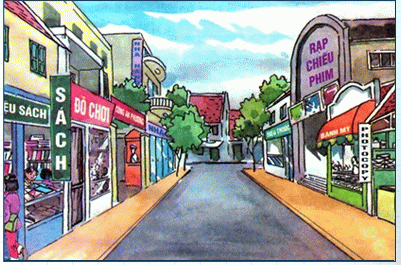
_ photocopy store (n): tiệm phô tô
_ bakery (n): tiệm bánh mì
_ movie theater (n) : rạp chiếu phim
_ drugstore (n): hiệu thuốc tây
_ police station (n): đồn cảnh sát
_ toystore (n): hiệu đồ chơi
_ between (prep) : ở giữa
_ opposite ( n): đối diện ( picture + example)
The photocopy story is opposite the bakery .
The movie theater is between the bakery and the drugstore.
The drugstore is opposite the restaurant .
The restaurant is next to the police station .
The police station is between the toy store and the bookstore .
@ Answer Key : 1F , 2T , 3T , 4T , 5F
C4: Practice with a partner:
a) Where is the bakery / the drugstore/ movie theater/
toy store / restaurant ?
It is between the photocopystore and the movie
Theatre.
It is opposite the restaurant
It is next to ………………
b) It is opposite the movie theater . What is it ?
It is the police station.
1) It is opposite the bakery . (Toystore)
2) It is between the bakery and the drugstore .
(Movie theater)
3) It is next to the restaurant . (Police station)
4) It is opposite the bookstore . (Photocopy store)
5) It is next to the movie theater.
(Bakery/ Drug store)
C5: Ask and answer Qs about your house with a partner:
a. What is in front of your house?
b. What is behind your house?
c. What is to the left of your house?
d. What is to the right of your house?
C6.Remember:
*Homework:
Learn the new words by heart .
Prepare for the 2nd test .
Week: 13 Date of preparation: 19/11/ 2016
Period: 37 Date of teaching : 21/11/ 2016
MA TRẬN ĐỀ KIỂM TRA LẦN 2 LỚP 6 NĂM HỌC 2016 -2017
|
NỘI DUNG CHƯƠNG TRÌNH |
MỨC ĐỘ |
TỔNG SỐ |
||||||||||||
CHỦ ĐỀ |
NHẬN BIẾT |
THÔNG HIỂU |
VẬN DỤNG |
||||||||||||
|
Trắc nghiệm |
Tự luận |
Trắc nghiệm |
Tự luận |
TN |
Tự luận |
|||||||||
|
S. câu |
Điểm |
S. câu |
Điểm |
S. câu |
Điểm |
S. câu |
Điểm |
S. câu |
Điểm |
S. câu |
Điểm |
Số câu |
Điểm |
|
Unit 4 |
- adjectives |
1 |
0.25 |
|
|
|
|
|
|
|
|
|
|
1 |
0,25 |
BIG OR SMALL? |
- possessive |
|
|
|
|
|
|
|
|
|
|
1 |
0,25 |
1 |
0,25 |
-Vocabulary
|
2 |
0.5 |
|
|
|
|
|
|
|
|
|
|
2 |
0,5 |
|
-to have
|
|
|
|
|
|
|
|
|
|
|
1 |
0,25 |
1 |
0,25 |
|
-time |
1 |
0,25 |
|
|
|
|
|
|
|
|
|
|
1 |
0,25 |
|
UNIT 5 |
Prep: at |
1 |
0,25 |
|
|
|
|
|
|
|
|
|
|
1 |
0,25 |
THINGS I DO |
Present simple tense |
|
|
|
|
|
|
|
|
|
|
8 |
3,5 |
8 |
3,5 |
|
|
|
|
|
|
|
|
|
|
|
|
|
|
|
|
UNIT 6 |
Prep of position |
2 |
0,5 |
|
|
|
|
|
|
|
|
1 |
0,25 |
3 |
0,75 |
PLACES |
Which?, where? What? Tobe? |
3 |
0,75 |
|
|
|
|
|
|
|
|
|
|
3 |
0,75 |
|
Present simple tense |
|
|
|
|
|
|
6 |
3 |
|
|
1 |
0,25 |
7 |
3.25 |
|
|
|
|
|
|
|
|
|
|
|
|
|
|
|
|
Tỉ lệ |
|
|
|
|
|
|
|
|
|
|
|
|
|
Số câu |
28 |
|
Số câu : |
10 |
25% |
Số câu : |
6 |
30% |
Số câu : |
12 |
45% |
Số điểm |
10 |
||||
|
Số điểm : |
2,5 |
Số điểm : |
3 |
Số điểm : |
4,5 |
|
|
|||||||
FULL NAME: …………………………. THE SECOND TEST OF SEMESTER I
CLASS 6.... Time: 45 minutes
I/ Chọn đáp án đúng nhất để hoàn thành các câu sau: (2,5đ)
……… is your classroom? On 2nd floor. (What/ Where/ Which)
We have English ………… Monday. (on/ in/ at)
There is a hospital ……….. Minh’s house. (next/ in front/ near)
What time do classes finish? …….. eleven. (on/ in/ at)
She has five …………….. on Friday. (grade/ classes/ class)
………. grade is Lan in? (Which/ What/ Where)
My school is ……….. school. (a big/ big/ small)
Doctors work in the ………. (museum/ hospital/ factory)
Is your house near a school? ……… (Yes, it is/ Yes, there is/ Yes, it does)
………….? It’s six o’clock.(What time is it?/What is it time?/What time it is?)
II/ Làm theo hướng dẫn trong ngoặc: (1,5đ)
These are the books of the students. (viết lại câu dùng dạng sở hữu cách ’s)
……………………………………………………………………………………….
Our house (have) ………….. a yard. (chia động từ trong ngoặc)
His father (work) …………... in a school. (chia động từ trong ngoặc)
Their house is next …………..a temple. (điền giới từ thích hợp vào chỗ trống)
What do you do after school? (trả lời câu hỏi) ……………………………………
She watches television every night. (đổi câu sang thể phủ định)
……………………………………………………………………………………….
III/ Đọc đoạn văn, sau đó trả lời câu hỏi: (3đ)
Minh is fourteen years old. He is in grade 9. He lives in a house with his father, mother and sister. Their house is next to a store. On the street, there is a bookstore, a restaurant and a temple.
In the neighborhood, there is a photocopy store, a movie theater and a police station. His father works in the police station. His mother works in the bookstore.
Questions:
How old is Minh? ………………………………………
What does he do? ………………………………………
Which grade is he in? ………………………………………
How many people are there in his family? ………………………………………
Is his house next to a store? ………………………………………
Where does his father work? ………………………………………
IV/ Dựa vào các từ gợi ý để viết thành câu hoàn chỉnh: (3đ)
Tom/ get up/ half past six/ every morning.
He/ brush/ teeth/ 6.45
He/ have/ breakfast/ seven.
He/ go/ school/ seven thirty.
5. His classes/ start/ 8 o’clock/ finish/ 4.30 p.m
6. He/ do/ homework/ evening.
……………………………………………………………………………………… ……………………………………………………………………………………… ……………………………………………………………………………………
Week: 13 Date of preparation: 20/11/ 2016
Period: 38 Date of teaching : 22/11/ 2016
Unit 7 :YOUR HOUSE
Division of lessons
Lesson 1 : A1,3,5,7
Lesson 2: B1
Lesson 3: B2,3,4
Lesson 4: C1,3
Lesson 5: C4,6
Lesson 1: Is your house big? (A1,3,5,7)
I/ Objectives:
By the end of the lesson, students will be able to practice to describe a house and its surrounding with adjectives.
II/ Language contents:
a. Grammar : Is it …? Yes, it is./ No, it isn’t.
Is there a/an . . .? Yes, there is./ No, there isn’t.
Are there any . . .? Yes, there are./ No, there aren’t.
b Vo: old, new, beautiful, vegetable garden.
Review: big, small, yard, flower, tree, lake, river, rice paddy.
III/ Teaching aids : textbook, EZ Talk, chalks, pictures,
IV/ Techniques: pairwork, individual work.
V/ Procedures:
Teacher ’ s / students ’ activities |
Contents |
|||||||||||||||||||||||||||||||||||||||||||||||||||||||||||||||||||||||||||||||||
I_WARM UP:
(WORDSQUARE)
II_Presentation:: Activity1:
T: Teach vocabulary.
T: Turn on the EZ Talk. Sts: Listen.
T: Let sts practice the dialogue. Sts: Work in pairs. T: Then have some pairs practice aloud. T: Let sts ask and answer with their partner. Sts: Pairwork. T: Have some pairs practice aloud. T: Emphasize
Activity 2:
T: Teach vocabulary.
T: Guide. Ss: Work in pair
T:Review the structures : T: Have Ss practise the structure What is that ? _ It is a hotel. Ss: Work in pair T: Have Ss practise the structure Is there / Are there .. ? Ss: Work in pairs.
Activity 3: T: Ask Ss to look at the pictures in A4 and choose one of them. T: Guide. Sts: work in pairs T: Have some pairs guess the pictures which their friends chose by making some Qs.
T:remind Sts:pay attention
III_ CONSOLIDATION T: Make Qs Sts: Answer.
IV: HOME WORK T: Remark the lesson and give homework. |
B
E
H
I
N
D
O
O
L
Y
E
B
I
G
T
R
E
E
R
L
A
K
E
R
E
S
F
T
I
M
U
E
N
W
M
T
N
V
I
S
T
R
O
A
D
U
E
E
N
G
I
L
L
R
O
H
O
U
S
E
F
L
A
C
R
I
G
H
T
A
U
Y
F
W
E
L
L
T
A
L
L
A1: Listen. Then practice with a partner. _ old ( adj) : cũ _ new : mới( example + realia + opposite ) e.g.: My book is old . Lan’s book is new. _ any : một vài, một ít.(dùng trong câu PĐ và NV) ( translation ) _ some:một vài, một ít (dùng trong câu khẳng định) (translation) _ beautiful (adj): đẹp _ vegetable garden: vườn rau.
Ex: Is your house big? Yes, it is.
@ Is it . . .? Yes, it is./ No, it isn’t. A3: Practice with a partner. Supermarket: Post office: Bank:
_ It is a hotel. 2)_ Is there a lake near your house ? _Yes , there is . /No , there isn’t. _ Are there any trees near your house ? _ Yes , there are . / No , there aren‘t. 1) What is this ? It is a bank Is there a bank near your house ? No, there isn’t 2) What are those ? They are flowers. Are there any flowers near your house ? Yes, there are. 3) What is this ? It is a supermarket Is there a supermarketnear your school ? Yes,there is . 4) ……. A5: Listen to this description.
Key: Picture a (Tape scrip: There are some mountains behind the house. There are tall trees to the right of the house. There is a lake to the left.)
Homework: Learn the new words by heart . Learn the lesson carefully. Do exercises: 1,2 in workbook. A7.Remember |
Week: 13 Date of preparation: 20/11/ 2016
Period: 39 Date of teaching : 22/11/ 2016
Unit 7 :YOUR HOUSE
Lesson 3: Town or country? (B1)
I/ Objectives:
By the end of the lesson, students will be able to understand the passages about Ba’s apartment in a town and Chi’s house in the country; sts can look at pics and describe an apartment in town or a house in the country.
II/ Language contents:
a. Grammar : review: Is there a/an . . .? Yes, there is./ No, there isn’t.
Are there any . . .? Yes, there are./ No, there aren’t.
Do you live …?/ Does she live …?
b Vo: clinic, zoo, apartment, paddy field, noisy, quiet, here.
III/ Teaching aids : textbook, EZ Talk, chalks, pictures,
IV/ Techniques: groupwork, pairwork, individual work.
V/ Procedures:
Teacher ’ s / students ’ activities |
Contents |
I_WARM UP: T: Ask Ss some questions Ss: Answer T: Have class play the game (BRAINSTORMING) Ss: Whole class
II_PRESENTATION: Activity1:
T: Teach vocabulary:
Checking vocabulary: (What and Where)
T: Ask Ss to read the text . T: Call on some Ss to read the text aloud Ss: Read individually
T: Ask Ss to choose the correct answers Ss: Work in pair T: Call on some pairs to practice before the class
III_ CONSOLIDATION T: Ask Ss to talk about themselves .
IV: HOME WORK T: Remark the lesson and give homework. |
+ Is there a river in front of your house ? + Are there any mountains behind your house ?
B1: Listen and read . Then choose the …… _ apartment (n) : căn hộ ( picture ) _ clinic (n): phòng khám ( translation ) _ market (n) : chợ ( picture ) _ zoo(n) : sở thú ( picture ) _ noisy (n) : nhộn nhịp, ồn ào ( example +picture ) _ quiet(n) : yên tĩnh ( opposite ) _ paddy-field(n) rice paddy ( synonym )
a) Does Ba live in town ? Yes, he does. b) Does he live in a house ? No, he doesn’t. c) Is it noisy ? Yes, it is. d) Does Chi live in town ? No, she doesn’t. e) Are there any stores ? No, there aren’t. f) Is it quiet ? Yes, it is.
quiet.
*Homework: Learn the new words by heart . Learn the lesson carefully. Prepare part C1,3 for next lesson.
|
**************************************
Week: 14 Date of preparation: 26/11/ 2016
Period: 40 Date of teaching : 28/11/ 2016
Unit 7 :YOUR HOUSE
Lesson 3: Town or country? (B2,3,4)
I/ Objectives:
By the end of the lesson, students will be able to understand the passages about Ba’s apartment in a town and Chi’s house in the country; sts can look at pics and describe an apartment in town or a house in the country.
II/ Language contents:
a. Grammar : review: Is there a/an . . .? Yes, there is./ No, there isn’t.
Are there any . . .? Yes, there are./ No, there aren’t.
Do you live …?/ Does she live …?
b Vo: clinic, zoo, apartment, paddy field, noisy, quiet, here.
III/ Teaching aids : textbook, EZ Talk, chalks, pictures,
IV/ Techniques: groupwork, pairwork, individual work.
V/ Procedures:
Teacher ’ s / students ’ activities |
Contents |
||||||||||||||||||||||||
I_WARM UP: T: Ask Ss some questions Ss: Answer T: Have class play the game (BRAINSTORMING) Ss: Whole class
II_PRESENTATION: Activity1:
T: Ask Ss to read about Ba Ss: Read individually. T: Call on some Ss to read aloud Ss: Read individually T: Ask Ss to write about Chi . Ss: Write individually.
Activity 2: T: Explain the exercise. Ss: Listen T: Ask Ss to guess Where Nam/ Tuan/ Nga lives . Ss: Work in groups T: Turn on the tape and ask Ss to listen and check their prediction Ss: Listen and check T: Give the correct answers
T: Ask Ss some questions about Minh, Tuan, Nga. Ss: Answer .
T:Remind Sts:listen carefully
III_ CONSOLIDATION T: Ask Ss to talk about themselves .
IV: HOME WORK T: Remark the lesson and give homework. |
+ Is there a river in front of your house ? + Are there any mountains behind your house ?
B2: Read about Ba. Then write sentences about Chi.
Near his apartment,There is a market. It is very noisy.
Near her house there aren’t any stores . It is very quiet. B3: Listen and check. Complete the table……
Key: Minh lives in an apartment in the city. Tuan lives in a house in a town. Nga lives in a house in the city.
Ex: I live in a house in the country. Near my house there is a big paddy field. It is very quiet.
B4.Remember
*Homework: Learn the new words by heart . Learn the lesson carefully. Prepare part C1,3 for next lesson.
|
Week: 14 Date of preparation: 27/11/ 2016
Period: 41 Date of teaching : 29/11/ 2016
Unit 7 :YOUR HOUSE
Lesson 4: On the move (C1,3)
I/ Objectives:
By the end of the lesson, students will be able to ask and answer about means of transport.
II/ Language contents:
a. Grammar : How do you go/ travel to school? - I go to school by bike. /I travel by bike. /I walk .
How does she go/ travel to work? - She goes by bus./ She travels by bus./ She walks.
The simple present with: I travel/She travels…
b Vo: by bus/ bike/ motorbike/ car/ plane/ train, to travel, to walk.
III/ Teaching aids : textbook, EZ Talk, chalks, pictures,
IV/ Techniques: groupwork, pairwork, individual work.
V/ Procedures:
Teacher ’ s / students ’ activities |
Contents |
I_WARM UP: T: Ask Ss to talk about Ba. T: Set the situation.
_Ask Ss to guess the aim of the lesson . _Tell the aim of the lesson II. PRESENTATION: Activity1:
T: Teach vocabulary: (picture)
Checking vocabulary: (Matching) T: Ask Ss to listen to the dialogue
T: Let sts work in pairs to practice before the class.
T: Explain the grammar notes Ss: Copy down
T: Have Ss ask and answer the questions . Ss: Work in pairs T: Call on some pairs to practice in front of the class
Activity2: T: Explain the exercise T: Turn on the EZ Talk. Ss: Listen and write short answers.
T: Ask sts to give their answers. T: Turn on the tape again, ask Ss to listen and correct the mistakes if any Ss: Correct.
III_ CONSOLIDATION T: Make some Qs. Sts: Answer.
IV: HOME WORK T: Remark the lesson and give homework |
C1: Listen. How do you go to school ? 1. bike / bicycle 2. motorbike
I go to school by bike. I go to school by motorbike. 3. bus 4. car
I go to school by bus. I go to school by car.
4.
walk
-plane: mbay -train: tàu hỏa *Structures. Ask and answer about means of transports. How + do/does + S + go/travel …….? S + go(es)/travel(s) ……….. + by +means of transports a) How does Lien go to school? She goes by bike. b) How does Thu go to school? She goes by motorbike. c) How does Tuan go to school? He goes by bus. d) How does Hoa go to school? She goes by car. e) How does Huong go to school? She walks to school.
C3: Listen and write short answers: Ex: How do they travel? By bus.
a.Ba: By motorbike e.Tuan: By bus b.Lan: By plane f.Mrs.Huong: By bike c.Nam: By bus g.Mr.Ba: By train d.Nga: By car h.Miss Chi: Walk
ex: How do you go to school, Anh? How does Anh go to school, Tuan?
*Homework: Learn the new words by heart . Do the exercises 1,2 in the workbook . Prepare parts: C4,5,6 for next lesson. |
Week: 14 Date of preparation: 27/11/ 2016
Period: 42 Date of teaching : 29/11/2016
Unit 7 :YOUR HOUSE
Lesson 5: On the move (C4,6)
I/ Objectives:
By the end of the lesson, students will be able to read and understand the passage about Hoang’s daily activities; talk about Hoang’s and sts’ daily activities .
II/ Language contents:
a. Grammar : review: What time does he/ do you get up?
The simple present with: I leave the house/She leaves the house.
b Vo: daily activities: take a shower, leave the house, start, end.
time: half past = thirty past; a quarter to/ past = fifteen to/ past.
Conjontions: so, then.
Phonetics: /ai/ , /i/ in words: time, five, six, clinic.
III/ Teaching aids : textbook, EZ Talk, chalks, pictures,
IV/ Techniques: groupwork, pairwork, individual work.
V/ Procedures:
Teacher ’ s / students ’ activities |
Contents |
I_WARM UP:
T: Ask Ss to look at the pictures and write the name of each means of transportation. Ss: Team work T: Ask Ss to answer some questions Ss: Answer
II_PRESENTATION: Activity1:
T: Set the situation: T: Ask Ss some questions: T: Ask Ss to guess the aim of the lesson T: Tell the aim of the lesson : Talk about Hoang’s habitual actions
T: Teach vocabulary: ( translation)
Checking vocabulary: (Slap the board)
T: Ask Ss to read the text.
T: Have Ss read the text again . T: Have Ss ask and answer the questions Sts: Pairwork.
Activity2:
T: Guide – Turn on the EZ Talk. Sts: Listen and repeat.
T: Ask sts to write two more verses about sts (do it at home)
III_ CONSOLIDATION T: Review. Sts: Listen.
IV: HOME WORK T: Remark the lesson and give homework. |
Bike Car Bus
Train Motorbike Plane + How do you go to school ? + How does your father travel to work?
C4: Listen and read. Then ask and answer the questions. + What time do you get up ? + What time do you go to school? + How do you go to school ? + Is your school near your house ? +What time do classes start ? +What time do they finish ?
_ leave (v) :rời khỏi _ so(adv) : vì thế, vì vậy _ then (adv) : sau đó _ end (v) finish
@ Answer the questions
1- Hoang gets up at five thirty. 2- He goes to school at half past six . 3- No, he doesn’t. 4- Yes, he does. 5- His classes start at seven . 6- They end at half past eleven.
C6: Remember. Structures. Aak and answer about means of transports. How + do/does + S + go/travel …….? S + go(es)/travel(s) ……….. + by +means of transports
I/We/You/They get-leave-start-end He/She gets-leaves-starts-ends Homework: Learn the lesson carefully. Do the exercises 3,4 in workbook . Prepare parts: A1,2,3 of unit 8 for next lesson. |
*************************************
Week: 15 Date of preparation:November 22nd, 2014
Period: 43 Date of teaching :November 24th, 2014
CORRECTING THE TEST
I/ Objectives:
At the end of the lesson, sts will be able master some knowledge of the simple present .
II/ Language content:
the simple present, Wh-words, prepositions, possessive, adjectives.
III/ Teaching aids: chalk, board, test.
IV/ Procedures:
T’s and Sts’ activities: |
Contents: |
Presentation: T: Hand out sts the test papers scored. Sts: Look at their test papers. T: Revise and correct. Sts: Listen. T: Ask sometimes. Sts: Answer. T: Summarize. Sts: Take notes. |
A/ Grammar: 1.The present simple tense (verb): + We/ you/ they + V-bare inf… He/ she/ it + V-s/es… _ S + don’t/doesn’t + V-bare inf… ? Do/Does + S + V-bare inf….? 2. to have: We/ you/ they + have… He/ she/ it + has … 3. Preposition: At: vào lúc (đứng trước giờ) On: vào (đứng trước thứ, ngày, buổi có thứ) In: vào (đứng trước buổi, tháng, năm, mùa…) 4. possessive: Ex: Mai’s book is big. The students’ are small.
B/ Keys: I/ 1. Where 6. which
II/ 1.These are the students’ books. 2.has 3.works 4.to 5.Ex: I listen to music/ I watch TV . . . 6.She doesn’t watch television every night. III/ 1.Minh is fourteen years old. 2.He is a student. 3.He is in grade 9. 4.There are four people in his family. 5.Yes, it is. 6.His father works in the police station. IV/ 1.Tom gets up at half past six every morning. 2.He brushes his teeth at 6.45 3.He has breakfast at seven. 4.He goes to school at seven thirty. 5.His classes start at 8 o’clock and finish at 4.30 p.m. 6.He does his homework in the evening
|
************************************
Week: 15 Date of preparation: 03/12/ 2016
Period: 43 Date of teaching : 05/12/ 2016
CORRECTING THE TEST
I/ Objectives:
At the end of the lesson, sts will be able master some knowledge of the simple present .
II/ Language content:
the simple present, Wh-words, prepositions, possessive, adjectives.
III/ Teaching aids: chalk, board, test.
IV/ Procedures:
T’s and Sts’ activities: |
Contents: |
Presentation: T: Hand out sts the test papers scored. Sts: Look at their test papers. T: Revise and correct. Sts: Listen. T: Ask sometimes. Sts: Answer. T: Summarize. Sts: Take notes. |
A/ Grammar: 1.The present simple tense (verb): + We/ you/ they + V-bare inf… He/ she/ it + V-s/es… _ S + don’t/doesn’t + V-bare inf… ? Do/Does + S + V-bare inf….? 2. to have: We/ you/ they + have… He/ she/ it + has … 3. Preposition: At: vào lúc (đứng trước giờ) On: vào (đứng trước thứ, ngày, buổi có thứ) In: vào (đứng trước buổi, tháng, năm, mùa…) 4. possessive: Ex: Mai’s book is big. The students’ are small.
B/ Keys: I/ 1. Where 6. which
II/ 1. has 2.works 3.to 4.Ex: I listen to music/ I watch TV . . .
III/ 1.Minh is fourteen years old. 2.He is a student. 3.He is in grade 9. 4.There are four people in his family. 5.Yes, it is. 6.His father works in the police station. IV/ 1. This is not my pen 2. How many floors does your school have ? 3. What time does he wash his face ? 4. Is the bag big or small ?
V/
|
Week: 15 Date of preparation: 04/12/ 2016
Period: 44 Date of teaching : 06/12/ 2016
Unit 8 :OUT AND ABOUT
Division of lessons
Lesson 1 : A1,2,3
Lesson 2: A4,6,7
Lesson 3: B1
Lesson 4: B2,4
Lesson 5: C1,2
Lesson 6: C3,4,5,6
Lesson 1: What are you doing? (A1,2,3)
I/ Objectives:
By the end of the lesson, students will be able to describe, ask and answer some activities that are happening.
II/ Language contents:
a. Grammar : -talk about an action which is happening: I am playing…/She is riding…/We are traveling…/They are waiting…
-ask and answer activities which are happening: What are you doing?/What is he doing?
*the present progressive tense in informative and questionative. “what …doing?”
b Vo: means of transports: ride (her bike), drive(his car), wait for a train.
Two ways to form V-ing: play-playing; ride-riding, have-having, drive-driving.
III/ Teaching aids : textbook, EZ Talk, chalks, pictures,
IV/ Techniques: groupwork, pairwork, individual work.
V/ Procedures:
Teacher ’ s / students ’ activities |
Contents |
I_WARM UP: T: Ask Ss to read the passage on page 80 and answer some questions : Ss: Read and answer
T: Ask Ss to write down some words related to means of transportation on the board . II_NEW LESSON: Activity1: T: Teach Vo.
T: Give two examples : T: Tell the difference between them.
T: Explain the structures and give examples Ss: Listen and copy down
Activity2: T: Have Ss to ask and answer. Ss: Work in pair
Activity3: T: Have Ss to ask and answer , looking at each picture in A 3 Ss: Work in pair
III_ CONSOLIDATION _ Ask Ss to read the dialogue again. _ Asks s to translate into English T: Correct if any.
IV: HOME WORK _T: Remark the lesson and give homework. |
What time does Hoang get up? What time does he go to school? How does he go to school? What time does he have lunch?
Bike Motorbike Car Bus Plane Train
A1: Listen and read. _ ride (v) : cưỡi ( ngựa, xe đạp) (translation) _ drive ( v): lái ( xe máy , xe ô tô )( translation) _ wait for ( v): chờ, đợi (translation) _ video game (n):trò chơi điện tử ( picture)
1) Lan listens to music every evening . 2) Lan is listening to music . @ The present progressive tense. S + am / is / are + V+ing ………… Spelling: 1- read reading
Uses: diễn tả hành động đang xảy ra ngay lúc mình nói. I am playing video games I am riding my bike
He is playing video games He is riding his bike I am driving my car We are walking to school
He is driving his car They are walking to school We are traveling to school by bus We are waiting for a train
They are traveling to school They are waiting for a train by bus A2: Ask and answer …. a) What is he doing? He is ………………………. b) What is she doing? She is ……………………… c) What are they doing? They are ………………… d) What are you doing? I am ……………………….. A3: Answer. Then write …
a) What are you doing? c) What is he doing? I am doing my homework He is driving his car
b) What is she doing? d) What are they doing? She is riding her bike They are waiting for a bus
1) Tôi đang xem ti vi . 2)Cô ấy đang đi đến bưu điện. 3) Chúng tôi đang chờ xe buýt.
Homework: Learn the lesson carefully. Do exercises 1,2 in workbook. Prepare parts:A4,5,6 for next period.
|
************************************
Week: 15 Date of preparation: 07/12/ 2016
Period: 45 Date of teaching : 09/12/ 2016
Unit 8 :OUT AND ABOUT
Lesson 2: What are you doing? (A4,6,7)
I/ Objectives:
By the end of the lesson, students will be able to listen to identify some activities of transports; understand short passages about Mr.Ha, Miss Hoa, Mr and Mrs.Vui
II/ Language contents:
a. Grammar : -ask and answer about activities of transports: who, where, how.
*the present progressive tense in questionative. “who …doing?”, where…going?,
How… traveling?
b Vo: review: means of transports:by car, train, motorbike…
teach: a businessman, by plane.
III/ Teaching aids : textbook, EZ Talk, chalks, pictures,
IV/ Techniques: groupwork, pairwork, individual work.
V/ Procedures:
Teacher ’ s / students ’ activities |
Contents |
I_WARM UP: T: Let sts slap the board.
II_PRESENTATION:: Activity1:
T:Teach vocabulary:
T: Explain how to do the exercise Turn on the EZ Talk and ask Ss to listen (twice) Ss: Listen and number each picture T: Call on some Ss to give the answers
T: Turn on the EZ Talk again. Ss: Listen and correct T: Give the key answers
(Tapescript: 1.Mr.Tam is a businessman. He’s driving home from work. 2.Mrs.Thanh is waiting at the station. The train is late and she is very angry. 3.Nam and Quang are going around the city by motorbike. 4.Viet is a student. He is riding his bike to school. 5.Mai lives near her school. She’s walking home from school. 6.The boy is waiting for the bus downtown.)
Activity2:
T: Have Ss read the text again , then ask and answer . Ss: Work in pair to ask and answer T: Call on some pairs to practice in front of the class Ss: Open pair work
T:Remind Sts:pay attention
III_ CONSOLIDATION _ Ask Ss to build a dialogue from the text _ Make five sentences , talking about where someone is going and how someone is traveling. IV: HOME WORK _T: Remark the lesson and give homework. |
SLAP THE BOARD!
A4: Listen and number the pictures… @ The present progressive tense. S + am / is / are + V+ing …………
_ businessman (n) : thương gia ( translation ) _ station (n) : ga tàu _ downtown (n) : _ fly: (v) _ in the sky _ over the sea
a _ 4 b _ 1 c _ 5
d _ 3 e _ 6 f _ 2
A6: Read. Then ask and answer Qs with: Who, What, Where, How. Ex: Who is that? That is Lan. What does she do? She is a student. Where is she going? She is going to school. How is she traveling? She is traveling by bike.
a) Who is that ? That is Mr Ha. What does he do ? He is a businessman. Where is he going? He is going to Ha Noi. How is he traveling? He is traveling by plane. b) Who is that ? That is Miss Hoa. What does she do ? She is a teacher. Where is she going? She is going to school. How is she traveling? He is traveling on foot. c) Who are they ? They are Mr Tuan and Mrs Vui What do they do ? They are doctors Where are they going? They are going to the hospital How are they traveling? He are traveling by car.
A7.Remember
*Homework: Learn the lesson carefully. Do exercises: 3,4 in workbook. Prepare parts: B1 for next period.
|
Week: 16 Date of preparation: 10/12/ 2016
Period: 46 Date of teaching : 12/12/ 2016
Unit 8 :OUT AND ABOUT
Lesson 3: A truck driver (B1)
I/ Objectives:
By the end of the lesson, students will be able to understand the passage about activities which Mr.Quang is doing; sts can practice much more the present progressive tense.
II/ Language contents:
a. Grammar : review:
special questions with the present progressive tense: who, where, what
It’s five o’clock in the morning. Mr.Quang is going to a farm.
b Vo: a truck, a food stall, to load, to unload, to take…to
III/ Teaching aids : textbook, EZ Talk, chalks, pictures,
IV/ Techniques: groupwork, pairwork, individual work.
V/ Procedures:
Teacher ’ s / students ’ activities |
Contents |
I_WARM UP: T: Ask Ss to put the sentences into their correct order to make a dialogue. Ss: Work in pairs .
II_PRESENTATION:
T: Teach vocabulary:
Checking vocabulary: ( Slap the board )
T/F statement prediction : T: guide Ss: Work in groups T: Ask Ss to read the text and check their prediction .
T: Have Ss read the text again , then ask and answer the questions Ss: Work in close pairs T: Call on some pairs of Ss to perform in front of the class Ss: Open pairs
III_ CONSOLIDATION T: Ask Ss to complete . Ss: Work in groups of three T: Give feedback
IV: HOME WORK T: Remark the lesson and give homework. |
(1) He is an engineer . (2)He is traveling by car. (3) What does he do? (4)He is going to the factory (5) Who is that ? (6)Where is he going ? (7) That is Mr Long . (8)How is he traveling
B1: Listen and read. Then ask … _ truck (n): xe tải (picture ) _ arrive (v) : đến (translation) _ load (v) : chất hàng (translation ) unload _ food stall: (n)cửa hàng ăn _ farmer (n) : nông dân (translation) _ to take …to: đưa … tới 1-Mr Quang is going to a factory . 2-A farmer is waiting for him. 3-They are loading the truck with vegetables . 4-He is taking the vegetables to the supermarket . 1F, 2T , 3T , 4F
a) He is a truck driver. b) He is going to a farmer c) A farmer is waiting for him d) He is taking the vegetables to the market in HN e) He is eating his breakfast f) He is eating at a foodstall
Mr.Quang is a …………….. He is …………………….at the farm. He is …………………….. the truck with vegetables. He is eating ……………………….at 7 o’clock.
*Homework: Do exercise: 1 in workbook. Learn the lesson carefully. |
Week: 16 Date of preparation: 12/12/ 2016
Period: 47 Date of teaching : 14/12/ 2016
Unit 8 :OUT AND ABOUT
Lesson 4: A truck driver (B2,4)
I/ Objectives:
By the end of the lesson, students will be able to understand the dialogue between Lan and Ba; practice much more the present progressive tense with yes/no Qs.
II/ Language contents:
a. Grammar : Are you working? Yes, I am.
review: what are you doing?
b Vo: to copy, to correct, to say, a fly, a spider, to make a web.
III/ Teaching aids : textbook, EZ Talk, chalks, pictures,
IV/ Techniques: groupwork, pairwork, individual work.
V/ Procedures
Teacher ’ s / students ’ activities |
Contents |
I_WARM UP: T: Point to pictures in part B1 and ask. Ss: Answer. T: Correct if any.
II_PRESENTATION: Activity1:
T: Show the pictures and ask Ss some questions ( Who is this ?) ( What is he doing ?) Ss: Answer
T: Teach some new words.
T: Ask Ss to listen and repeat the sentences in the dialogue .
T: Ask Ss to read the dialogue again. Ss: Play the roles of Lan and Ba .
T: Emphasize
T: Have Ss to ask and answer. Ss: Work in close pairs T: Call on some pairs of Ss to perform in front of the class Ss: Open pairs
Activity 2:
T:remind Sts:pay attention
III_ CONSOLIDATION T: Review the Vo and note. Sts: Listen.
IV: HOME WORK T: Remark the lesson and give homework. |
B2: Listen and repeat. Then answer…
Lan: Ba: to copy: to correct: to say: a fly: a spider: to make a web: * Yes/No questions of the present progressive tense: Tobe + S + V-ing . . . ? Yes, S + tobe No, S + tobe + not. a) He is doing his hemowork b) Yes, he is c) No, he isn’t d) He is playing soccer e) No, they aren’t
*Homework: Learn the lesson carefully. Do exercises: 2,3 in workbook. Prepare parts: C1,2 for next period.
B4.Remember |
******************************
Week: 17 Date of preparation: 17/12/ 2016
Period: 48 Date of teaching : 19/12/ 2016
Unit 8 :OUT AND ABOUT
Lesson 5: Road signs (C1,2)
I/ Objectives:
By the end of the lesson, students will be able to identify and talk about some road signs with “can” and “can’t”
II/ Language contents:
a. Grammar : Give permission and make prohibition :
You can park here.
You can’t turn right.
b Vo: can, cannot = can’t, one way, turn left/right, to park, go ahead, road signs.
III/ Teaching aids : textbook, EZ Talk, chalks, pictures,
IV/ Techniques: pairwork, individual work.
V/ Procedures:
Teacher ’ s / students ’ activities |
Contents |
I_WARM UP: T: Show some road signs and ask Ss to tell what they are . T: Ask Ss to guess the aim of the lesson. T: Tell the aim of the lesson : giving permission and making prohibition. II_NEW LESSON: Activity1:
T: Teach vocabulary:
Checking vocabulary: (What and where)
Open prediction : T: Ask Ss to look at the road signs Read the statements and guess what the signs say Ss: Read and predict
T: Ask Ss to listen to the statements and check their prediction T: Ask Ss to read C1 aloud.
Activity2: T: Explain the grammar notes and present the structures of modal verb “ Can”, “cannot” Ss: Listen and copy down
T: Ask Ss to look at the road signs, read the sentences and then complete htem with “can” or “can’t” Ss: Work in pairs T: give feed back.
III_ CONSOLIDATION T: Ask Ss to demonstrate some road signs T: Ask Ss to match the statements with the road signs. IV: HOME WORK T: Remark the lesson and give homework. |
C1: Listen and read.
_ can (v) : có thể _ can’t = can not : không thể ( picture + example) e.g: You can go to school by bike but you can’t go by motorbike. _ road sign (n): biển báo giao thông ( picture) _ park (v):đỗ/đậu xe ( picture) _ turn left/ right (v) : rẽ trái/ phải( picture) _ go ahead: đi thẳng về trước ( picture) _ difficult (adj) : khó khăn (translation) _ policeman (n) : công an ( picture) _ go into : đi vào (translation) _ one way : đường một chiều
Open prediction : This sign says : This sign says: A – You can park here A- You can’t turn right B _ You can’t park here B- You can turn left. C _ You can turn left C- You can’t park here D - You can go ahead D –You can turn right.
A-You can’t go ahead A- You can’t ride a motorbike. B-You can ride a motorbike B – You can’t park here C-You can go ahead. C- You can park here. D-You can turn left D-You can ride a motorbike.
B_ You can’t go ahead . C_ You can go into this street. D_ You can’t go into this street.
@Answer Key: 1A , 2B , 3C , 4A , 5D
C2: What do the road signs mean? … @ Modal verbs: “Can” S + can + V-inf …….. S + can not + V-inf …….. can not = can’t a) You can turn left b) You can’t turn right
c) You can go ahead d) You can’t ride a motorbike
*Homework: Learn the lesson carefully. Do exercise: 1 in workbook. Prepare parts: C3,4 for next period. |
Week: 17 Date of preparation: 20/12/ 2016
Period: 49 Date of teaching : 22/12/ 2016
Unit 8 :OUT AND ABOUT
Lesson 6: Road signs (C3,4,5,6)
I/ Objectives:
By the end of the lesson, students will be able to talk about some road signs through the reading and the listening with “must” and “mustn’t”
II/ Language contents:
a. Grammar : Talk about an obligation and make prohibition.
You must stop . _ You mustn’t go straight ahead
b Vo: must, mustn’t, look to the left/ right, dangerous, accident, warn, intersection, slow down, discipline.
III/ Teaching aids : textbook, EZ Talk, chalks, pictures,
IV/ Techniques: groupwork, pairwork, individual work.
V/ Procedures:
Teacher ’ s / students ’ activities |
Contents |
I_WARM UP:
T: Ask Ss to tell what the road signs below mean Ss: Answer II_PRESENTATION: Activity1: T: Set the situation .
T: Tell the aim of the lesson : talk about an obligation and make prohibition
T: Teach vocabulary
2_ Checking vocabulary: (Slap the board)
T: Ask Ss to read the text (C3) Ss:Have some sts read aloud. Activity2: T: Explain the exercise Show the pistures in C4 ask Ss to look at them and tell what they are Ss: Look at the signs and answer.
T: Ask Ss to listen and number the road signs as they hear .
T: Ask Ss to match the road signs with what they say.
Activity 3: T:read Sts:Repeat T: ask some sts to read aloud
Activity 4: T:Remind Sts:pay attention
III_ CONSOLIDATION T: Ask Ss to demonstrate some road signs T: Ask Ss to match the statements with the road signs. IV: HOME WORK T: Remark the lesson and give homework. |
C3: Listen and read.
_ must (v) : phải ( picture + example) _ mustn’t : không được ( picture + example) _ road (n) : con đường ( picture) _ dangerous (adj): nguy hiểm (translation) _ accident (n) : tai nạn (translation) _ warn(v) : cảnh báo (translation) _ Fast(adv) nhanh ≠ slow _ stop (v) : dừng lại (translation) _ slow down (v) : đi chậm lại (translation) _ intersection (n): giao lộ( picture)
C4: Listen. Which sign? Number the … A b c
1. You can’t turn right here. (c) 2. There’s a stop sign. I must stop. (d) 3. You can park your car here. (h) 4. You must slow down. There’s an intersection ahead. (a) 5. You can enter that road. Look at the sign. (g) 6. We can turn left here. (b) 7. You can’t ride motorbike on this street. (f)
C5.play with words
C6.Remember:
Mr Quang drives a truck He is driving it now You must slow down You mustn’t go fast
*Homework: Learn the lesson carefully. Do exercise: 3 in workbook. |
*******************************
Week: 18 Date of preparation: 24 / 12 / 2016
Period: 50 Date of teaching : 26 / 12 / 2016
GRAMMAR PRACTICE
I/ Objectives:
By the end of the lesson, students will be able to review structures and some vo of unit 7 and unit 8.
II/ Language contents:
a. Grammar : the simple present tense of the ordinary verb, the present progressive tense , the question words (Where , Who , What , When , How ), the prepositions of position , the
modal verbs can , can’t , must , mustn’t.
b Vo:
III/ Teaching aids : textbook, chalks, pictures,
IV/ Techniques: groupwork, pairwork, individual work.
V/ Procedures:
Teacher ’ s / students ’ activities |
Contents |
I_WARM UP: T: Ask a st to look at the signs and read. Ss: Answer T: Correct if any and give marks. II_PRESENTATION: Activity1: T: Review the simple present tense with the verbs “Go”, “ Travel”, “Walk” with Word-Q. “ How” to ask means of travelling. _ Notice the use of the tense: to express an everyday action. T: Ask Ss to do exercises Ss: Work in pairs Activity2: T: Review of formation: I am + V-ing You, we, they.. are + V-ing He, she … is + V-ing. And of use: To express an action happening at the same time or around the time as we are talking. T: Ask Ss to do exercises Ss: Work in pairs . Activity3: T: Have Sts look at the picture and ask the Qs like this: “What do you see in the pic?; What is the girl doing?; and the boy?….. T: Ask Ss to do exercises Ss: Work in pairs .
Activity4: T: Ask sts read the list of words and give their meanings.
b) Asking about a doer doing an action. (Doer as a subject.) c) Asking about an object d)Asking about the time. T: Ask Ss to do exercises Ss: Work in pairs Activity5: T: Distinguish the differences again. (Section 1 or grammar notes of C5, U. 8)* So we use the present progressive tense with “now, at the moment, today …” T: Ask Ss to do exercises Ss: Work in pairs
Activity6: T: Review the forms and the uses of modal verbs “must “ indicates an obligation and “mustn’t” indicates anon- obligation. T: Ask Ss to do exercises with the pics. Ss: Work in pairs Activity7: “Can” to express an ability to do sth. and “Can’t”, a non- ability. T: Ask Ss to do exercises with the pics. Ss: Work in pairs III_ CONSOLIDATION T: Ask Ss to demonstrate some road signs . T: Ask Ss to match the statements with the road signs. IV: HOME WORK _Remark the lesson and give homework.
|
with Wh- Qs ,Yes-No Qs and answers. + S + V (-s/es) . . . - S + don’t/ doesn’t + V-bare inf . . . ? (Wh) do/ does + S + + V-bare inf . . . Key: a) How do you go ?/ -I go to school by bus. b.How does he travel to Hanoi? -He travels by plane. c.Do you walk to school? No. I don’t walk to school. Does she walk to school? – Yes. She walks to school.
I am/ you, we, they.. are + V-ing He, she … is + V-ing. Key: a) Minh is riding his bike. b) They are waiting for a bus. c) She is watching television. d) We are playing soccer. e) He is listening to music f) They are walking to school. g) He is traveling to Hanoi.
In/ on/ at/ behind/ opposite /to the left of / to the right of / in front of / between……..ø Key: Look at the food store. A girl is in the store. A boy is waiting in front of the store. There ….behind …/ opposite / to the left / to the right.
What where when ………… Key: a) Where is Lan going? – She is going to the store. b) Who is waiting for Lan? –Nga is waiting for her
Key: a)as an example: -They play..every day./They are playing b) She rides … / She is riding ………now. c We go ………./ We are going ….today. d I walk / I am going … e He drives a truck. / He is driving …… at the moment.
Key: a) You must slow down. / You mustn’t go fast.
7. “Can” and “cannot / can’t” Key: You can’t park here. / You can park. / You can’t ride a motorbike here
*Homework: Learn the lesson carefully. |
Week: 18 Date of preparation: 26 / 12 / 2016
Period: 51 Date of teaching : 28 / 12 / 2016
REVISION
I/ Objectives:
By the end of the lesson, students will be able to review their knowledge to prepare the next examination.
II/ Language contents:
a. Grammar : the simple present tense, the present progressive tense .
b Vo:
III/ Teaching aids : textbook, chalks, pictures,
IV/ Techniques: groupwork, pairwork, individual work.
V/ Procedures:
Teacher ’ s / students ’ activities |
Contents |
|||||||||
I_WARM UP: @ Sets the situation . T: Ask Ss to group the following words . T: Tell the aim of the lesson . II_PRESENTATION: Activity1: T: Ask Ss to give the correct form of verbs.
Activity2: T: Ask Ss to fill in the blank in the passage with the correct preposition. Ss: Work in groups
Activity3: (Matching) A: Ask two groups to go to the board and match the answers with the questions. For fives seconds, any group having the most number of correct answers wins the game. Ss: Team work
Activity4: (Matching) A: Ask two groups to go to the board and match the answers with the questions. For fives seconds, any group having the most number of correct answers wins the game. Ss: Team work
III_ CONSOLIDATION _ Ask Ss to review vocabulary and structures for the first semester exam IV: HOME WORK _T: Remark the lesson and give homework. |
( goes , at , where , is going , plays , how , by , are listening , what , for , am walking , who , walks )
I. Fill in the blanks with the correct tense of the verbs.
# Answer Key : 1- go 2- is watching 3- walks 4- are waiting 5- am traveling 6- watches 7- have 8- lives 9- is working II. Fill in the blanks with the correct prepositions 1_ Trang has breakfast …………………………..six . 2_ My father goes …………work ………………car . 3_ We live …………………the country . 4_ I go ……………bed ………………9 o’clock . 5_ There is a stadium in front ……………..my school 6_ I have literature ……………..Tuesday and Friday . 7_Thu lives …..Hai Ba Trung Street………Quinhon 8_ Dung is waiting ………you ………..the classroom . 9_ There is a museum..…the movie theater and the park. 10_There is a flower garden …….the right of her house. 1.at 2.to - by 3.in 4.to-at 5. of 6.on 7.on –in 8.for-in 9.between 10.to III. Matching
Key: 1-c, 2-e, 3-g, 4-f, 5-a, 6-h, 7-i , 8- b, 9 – d.
*Homework: Learn the lesson carefully. |
|||||||||
**************************
Week: 19 Date of preparation: 02 / 01 / 2017
Period : 52 Date of teaching : 03 / 01 / 2017
REVISION (cont)
I/ Objectives:
By the end of the lesson, students continue to review their knowledge to prepare the next examination.
II/ Language contents:
a. Grammar : the simple present tense, the present progressive tense .
b Vo:
III/ Teaching aids : textbook, chalks, pictures,
IV/ Techniques: groupwork, pairwork, individual work.
V/ Procedures:
Teacher ’ s / students ’ activities |
Contents |
|
I_WARM UP: T: Give some Qs . Sts: Answer.
II_PRESENTATION: Activity1: T: Ask Ss to read the passage and answer the Qs. Sts: Do as T’s ask.
Activity2: T: Ask Ss to fill in the blank in the passage with the correct words. Ss: Work in groups
Activity3:
T: Guide. Sts: Do as T’s ask.
T: Have sts give their answers. T: Correct if any.
Activity4: (Matching) T: Ask two groups to go to the board and match the answers with the questions. For fives seconds, any group having the most number of correct answers wins the game. Ss: Team work
III_ CONSOLIDATION _ Ask Ss to review vocabulary and structures for the first semester exam IV: HOME WORK _T: Remark the lesson and ask sts to learn the lesson carefully.
|
1_ What is your name ? 2_ How old are you ? 3_ Where do you live ? 4_ What time do you go school ? 5_ How do you go to school ? 6_ What do you do ? 7_ How many people are there in your family ?
I_ Read the passage and answer the questions: This is my friend . Her name is Linh . She goes to school from Monday to Saturday.Her school is on Nguyen CaoThang Street and it is big. It has five floors, Linh’ classroom is on the third floor . She is in grade 6, class 6A. There are thirty-two students in her class. Linh starts her classes at 2 o’clock in the afternoon and finishes them at four thirty. On Monday she has math, literature and English. After school Linh plays badminton , but her friend , Lien doesn’t play it; she plays volleyball. Linh goes home at 5:30. Questions :
Answers:
II_ Fill in the blanks:
Dear Mai, Thank you _____your letter . I am in the _______ with my friend . She lives in a _______house. There is a flower garden in ______of the house. There is a vegetable garden _______the house . To the _______of it there is a lake and to the right of it there are tall _______ . Here is_______of the house. Key: for – country – beautiful – front-behind–left–trees -photo III_ Viết câu hỏi cho phần được gạch chân:
Key:
IV. Matching: 1_When do you have history? a_ There are forty . 2_ What time is it ? b_ I am in grade 6. 3_Where do they live ? c_I have it on Thursday . 4_How old are you ? d_ No , it isn’t . It is small. 5_How many students are there e_ It is quarter to seven . in your class? 6_ What do you do every afternoon ? f_I am eleven . 7_ What is your name? g_ They live in the city. 8_ Which grade are you in ? h_ I play volleyball. 9_ Is your house big ? i _ My name is Trinh . Key: 1-c, 2-e, 3-g, 4-f, 5-a, 6-h, 7-I, 8-b, 9-d.
HOME WORK Review the lesson carefully for the first term test.
|
Week: 18 Date of preparation: Dec 20th, 2009
Period: 52 Date of teaching: Dec 22nd, 2009
REVISION (con’t)
1_ Objectives: By the end of the lesson Ss will be able to:
To review the simple present tense of the ordinary verb, the present
continuous tense , the question words (Where,Wh ,What,When, How,
How many,How old ,What time,Which ), the prepositions of time
and position .
2_ Language contents:
@Vocabulary: revision of vocabulary related to sports , family , job ,
subjects , days of the week , places , means of transportation .
3_ Teaching aids: handout
4_ Procedures:
Teacher ’ s / students ’ activities |
Contents |
I_WARM UP: T: Ask some questions and call on Ss to answer Ss: Answer II_NEW LESSON: Activity1: T: Review the simple present tense with the verbs “Go”, “ Travel”, “Walk” with Word-Q. “ How” to ask means of travelling. _ Notice the use of the tense: to express an everyday action. T: Ask Ss to do exercises Ss: Work in pairs
Activity2: T: Review of formation: I am + V-ing You, we, they.. are + V-ing He, she … is + V-ing. And of use: To express an action happening at the same time or around the time as we are talking. T: Ask Ss to do exercises Ss: Work in pairs
Activity3: T: Ask sts read the list of words and give their meanings.
b) Asking about a doer doing an action. (Doer as a subject.) c) Asking about an object d)Asking about the time. T: Ask Ss to do exercises Ss: Work in pairs
III_ CONSOLIDATION T: Ask Ss to demonstrate some road signs T: Ask Ss to match the statements with the road signs. IV: HOME WORK T: Remark the lesson.
|
I _ Dùng từ /cụm từ gợi ý để viết đoạn văn hoàn chỉnh : This / family . We / our living room . here / four people / my family. My father / engineer. My mother / nurse. My sister and I / students . Our house / not big. It / beautiful . Key: This is my family. We are in our livingroom. Here are four people in my family. My father is an engineer. My mother is a nurse. My sister and I are students. Our house is not big. It is beautiful. Nam / twelve years old. He / live / his mother / father / two sisters / city. Her house / next / store . On the street / there / restaurant/ bookstore/ temple . In the neighborhood / there / hospital / factory . Nam’s father / work / factory . His mother / work / hospital . Key: Nam is twelve years old. He lives with his mother, father and two sisters in the city. Her house is next to a store. On the street, there is a restaurant, a bookstore and a temple. In the neighborhood, there is a hospital and a factory. Nam’s father works in the factory. His mother works in the hospital.
II_ Cho dạng đúng của động từ trong ngoặc :
III_ Hoàn thành mỗi chỗ trống bằng từ thích hợp :
10. I ...am......... a student .
*Homework: Review the lesson carefully for the first term test.
|
****************************************************************************************
Week: 19 Date of preparation: Dec 22nd, 2009
Period: 53 Date of teaching: Dec 28th, 2009
REVISION (Con’t)
1_ Objectives: By the end of the lesson Ss will be able to:
To review the simple present tense of the ordinary verb, the present
continuous tense , the question words (Where,Wh ,What,When, How,
How many,How old ,What time,Which ), the prepositions of time
and position .
2_ Language contents:
@Vocabulary: revision of vocabulary related to sports , family , job ,
subjects , days of the week , places , means of transportation .
3_ Teaching aids: handout
4_ Procedures:
Teacher ’ s / students ’ activities |
Contents |
||||||||||||||||
I_WARM UP: T: Ask some questions and call on Ss to answer Ss: Answer II_NEW LESSON: Activity1: T: Review the simple present tense with the verbs “Go”, “ Travel”, “Walk” with Word-Q. “ How” to ask means of travelling. _ Notice the use of the tense: to express an everyday action. T: Ask Ss to do exercises Ss: Work in pairs
Activity2: T: Review of formation: I am + V-ing You, we, they.. are + V-ing He, she … is + V-ing. And of use: To express an action happening at the same time or around the time as we are talking. T: Ask Ss to do exercises Ss: Work in pairs III_ CONSOLIDATION T: consolidate grammar notes.
IV: HOME WORK _T: Remark the lesson. |
1)
Wait for a bus/ a train / a friend
2)
II- Supply the correct form of verbs:
*Homework: Review the lesson carefully for the first term test.
|
Week: 19 _ Period: 54
Date of teaching: Wednesday,Dec 24th,2008
PHONG GD KRONG-BUK ĐỀ KIỂM TRA HỌC KỲ I TRUONG THCS LY TU TRONG MÔN: TIẾNG ANH ( 45 PHÚT)
Hi, my name is Tuan. I’m a student. I get up at half past five. I go to school at half past six. The school is near my house, so I walk. Classes start at seven and end at eleven fifteen. I walk home and have lunch at twelve o’clock.
Questions : a. What does Tuan do ? ……………………………………………………
c. What time does he go to school ? . . . .. . . . .. . . .. .. . . . . . .. . . . . .. . .. . . .. d. Does he go to school by car ? .. . .. .. . .. . . .. . . .. .. .. .. .. . .. … . . . . . . . . e. What time do classes start ? . . . .. . . . . .. .. . .. . . .. . . .. .. .. . .. . . . . . . . . . . f. Does he walk home . . . . . . . .. . . . .. . . .. .. . . . . ... .. .. . .. . . .. . . .. .. .. ..
B. WRITING:Em hãy dùng từ gợi ý sau để viết thành câu hoàn chỉnh. Câu 0 là ví dụ (3đ)
0. Hoa / be / a student . Hoa is a student . 1. She / go / school / foot / everyday . ………… …………………………… 2. Her father / be / a businessman . ……………………………………..….. 3. He / travel / Hanoi / plane . …………………………………………. 4. Her mother / be / a doctor . ………………………………………… 5. She / work / a hospital . ………………………………………… 6. She / go / work / motorbike . ………………………………………..
C. LANGUAGE FOCUS: I. Chia ñoäng töø trong daáu ngoaëc ñôn ôû hình thöùc ñuùng. Caâu 0 laø caâu ví duï (2,5ñ) 0) She is (be) a student 1) Ba ……………. (watch) television every evening . 2) There …………… (be) trees and flowers in the park . 3) I ………… ….. (listen) to music every evening. 4) Mr Hai ……………….. (drive) to work now. 5) They ……………….. (wait) for a bus at the moment.
II. Sắp xếp các từ dưới đây thành câu hoàn chỉnh . Câu 0 là ví dụ (0,75đ) 0. name / her / Lan / is Her name is Lan 1. Miss Lan / does / work / to / travel / how / ? . (By train) …………………………………………………………………. 2. is / river / there / a / my / near / house / . ………………………………………………………………….
………………………………………………………………….
III.Moãi caâu döôùi ñaây coù moät loãi sai. Em haõy tìm ra loãi sai gaïch döôùi loãi sai vaø söûa laïi cho ñuùng. Caâu 0 laø caâu ví duï (0,75ñieåm) 0. There are forty student in my class. students
|
Ngoài Giáo Án Môn Tiếng Anh Lớp 6 Cả Năm Theo Mẫu Mới [2022 – 2023] – Tài Liệu Tiếng Anh thì các tài liệu học tập trong chương trình 6 sẽ được cập nhật liên tục và nhanh nhất có thể sau khi kỳ thi diễn ra trên Danh mục Tài Liệu Học Tập nhằm giúp các bạn đọc thuận tiện trong việc nghiên cứu tài liệu. Quý thày cô và các bạn đọc có thể chia sẻ thêm những tài liệu học tập hữu ích đến địa chỉ email của chúng tôi, nhằm xây dựng nên kho đề thi phong phú, đa dạng cho các em học sinh tham khảo và rèn luyện.
Giáo Án Môn Tiếng Anh Lớp 6 Cả Năm theo mẫu mới [2022-2023] là một tài liệu giáo dục đầy đủ và chi tiết, được thiết kế dựa trên mẫu giáo án mới nhất. Được xây dựng nhằm đáp ứng yêu cầu của chương trình giảng dạy Tiếng Anh lớp 6 theo quy định của Bộ Giáo dục và Đào tạo.
Giáo án này mang đến cho giáo viên và học sinh một cấu trúc hợp lý và các hoạt động phù hợp để phát triển các kỹ năng ngôn ngữ cơ bản như nghe, nói, đọc, viết và phản xạ ngôn ngữ. Nội dung giáo án được sắp xếp theo các chủ điểm chính như học tập, gia đình, bạn bè, sở thích, du lịch, v.v. Đồng thời, giáo án cũng tập trung vào việc xây dựng từ vựng, ngữ pháp, và cung cấp các bài tập thực hành để học sinh áp dụng kiến thức vào thực tế.
Mỗi bài học trong giáo án được thiết kế một cách tỉ mỉ với các hoạt động phong phú như lắng nghe và hiểu nghĩa của văn bản, trò chuyện và thảo luận nhóm, đọc hiểu và trả lời câu hỏi, viết và trình bày ý kiến, v.v. Các hoạt động này giúp học sinh tăng cường kỹ năng giao tiếp tiếng Anh và mở rộng vốn từ vựng.
>>> Bài viết có liên quan







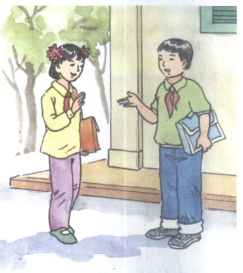
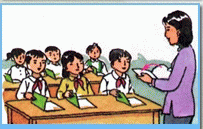
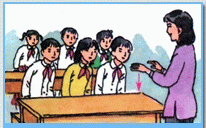
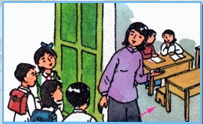
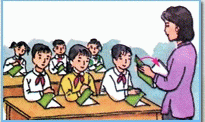
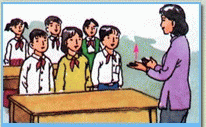
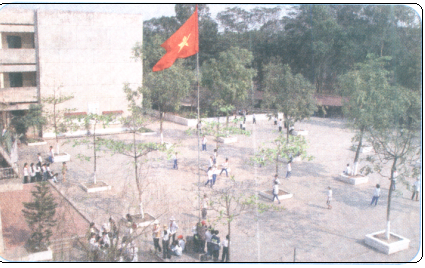
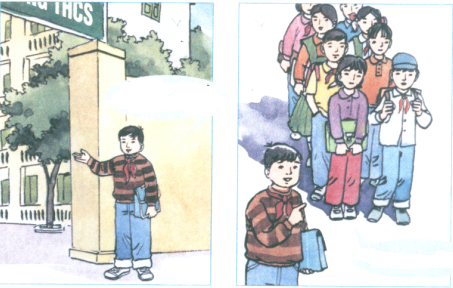
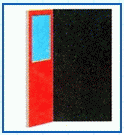
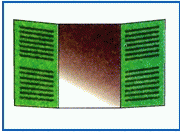
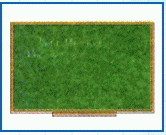
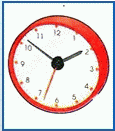
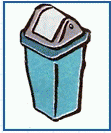
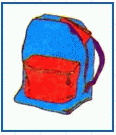

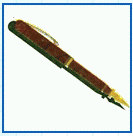
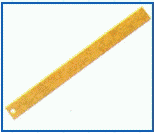
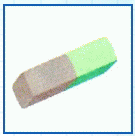
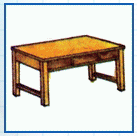
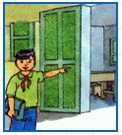
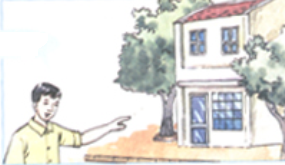
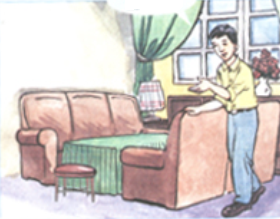
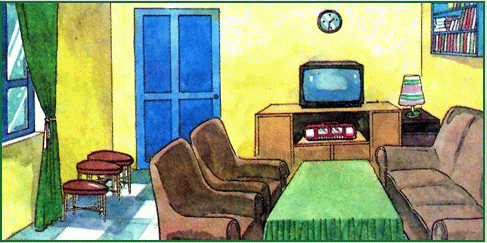





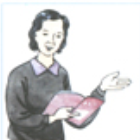


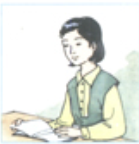
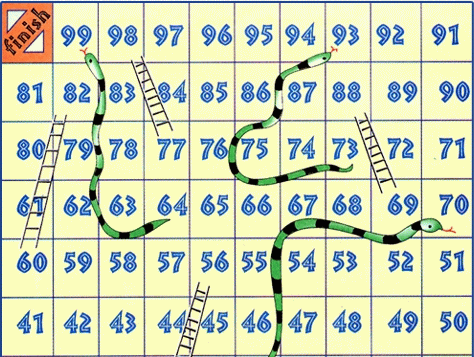
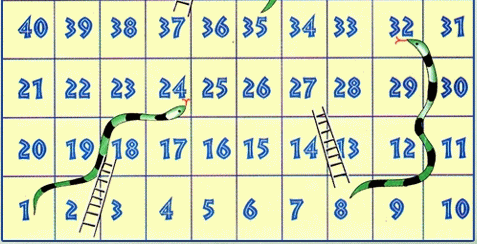
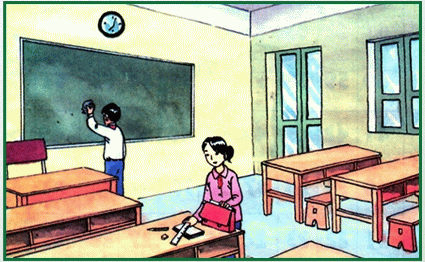


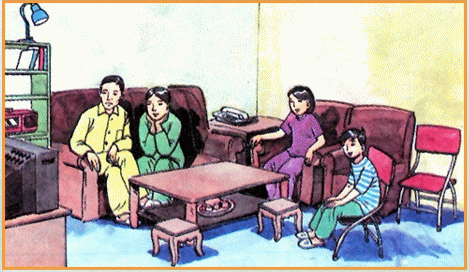
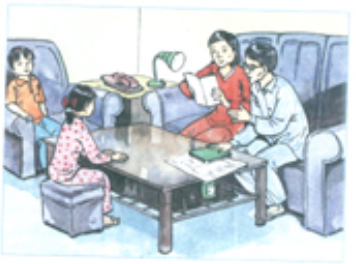
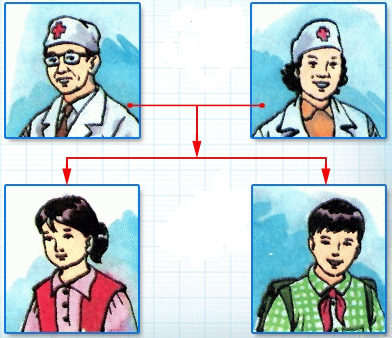
 Use: I am
Use: I am -
Open your book
. .
-
Open your book
. .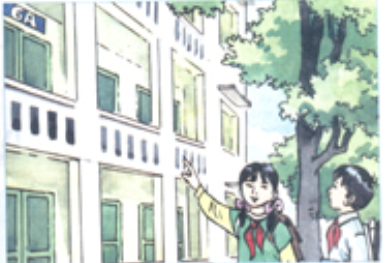
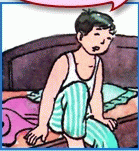
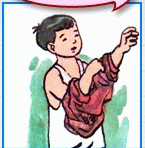
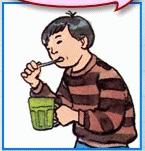
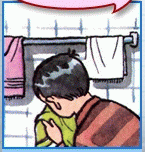
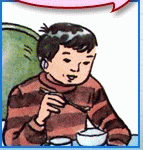
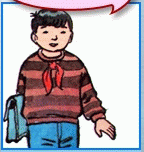
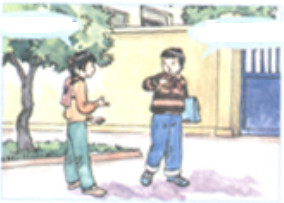
 _It’s
ten o’clock.
_It’s
ten o’clock.
 I/
1. forty-four 2.student students
I/
1. forty-four 2.student students

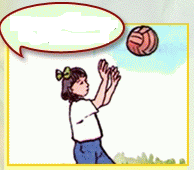

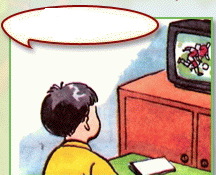 Lan
Lan
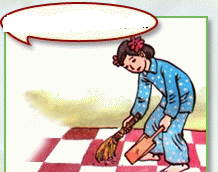
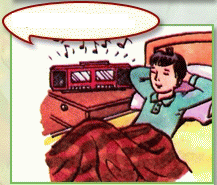 Thu
Thu
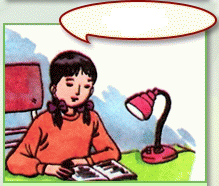

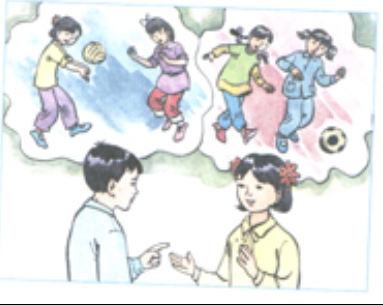
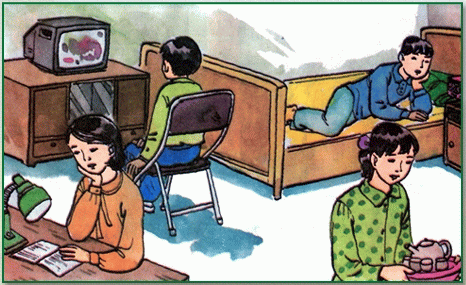


 have
breakfast get up play games
have
breakfast get up play games o
to school watch
o
to school watch




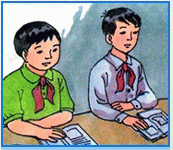
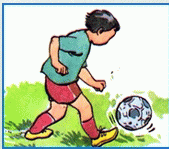
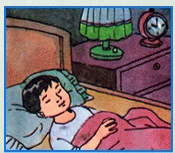





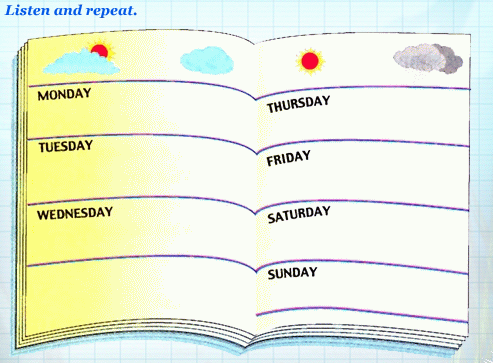
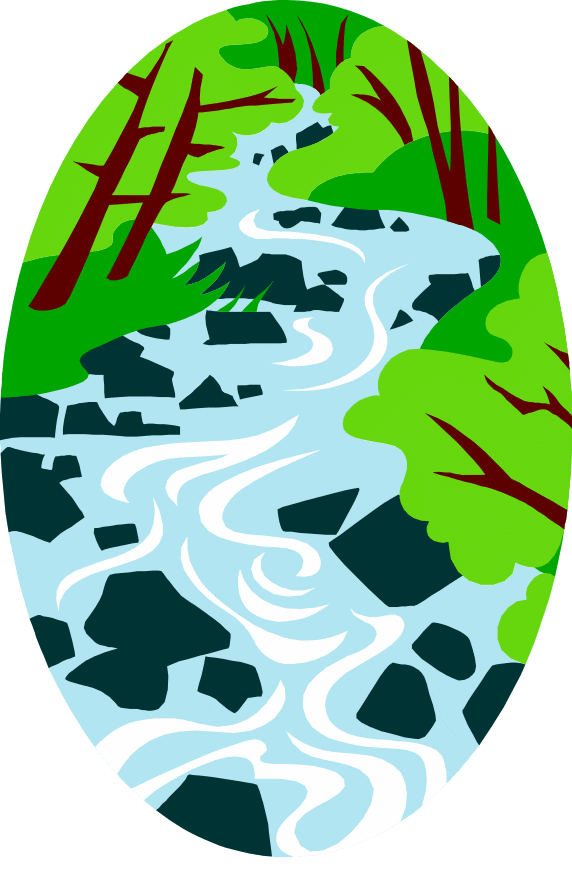


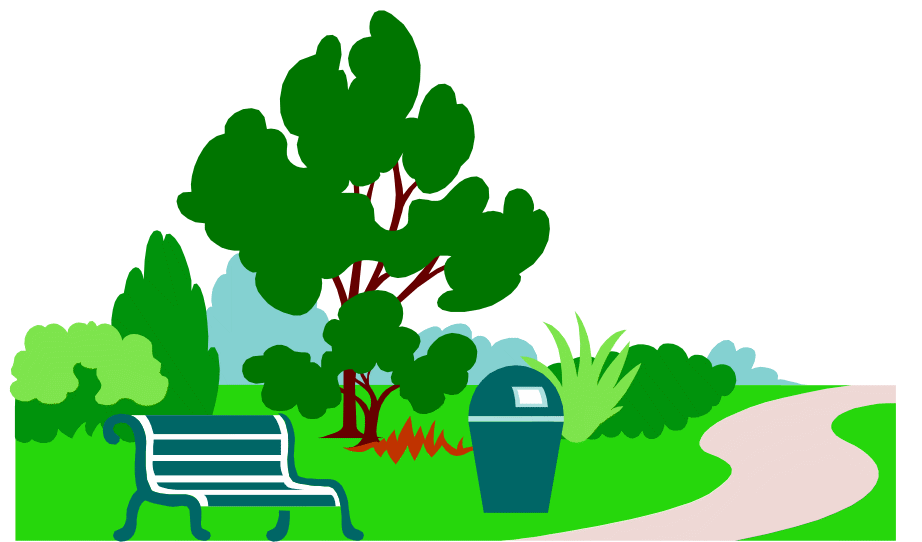


















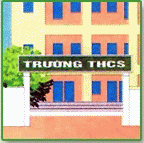
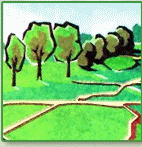
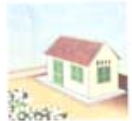
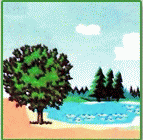
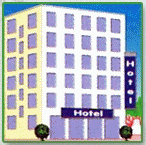
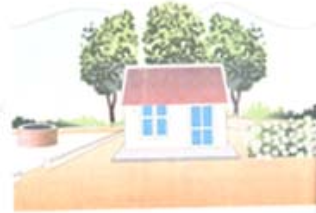
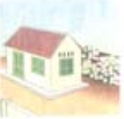
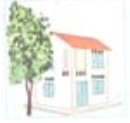
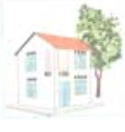
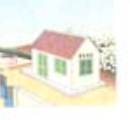
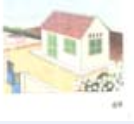



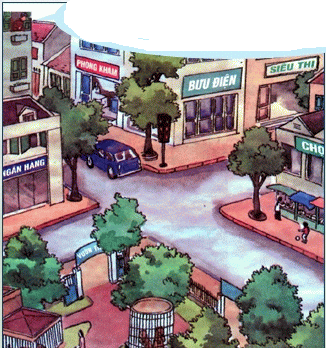
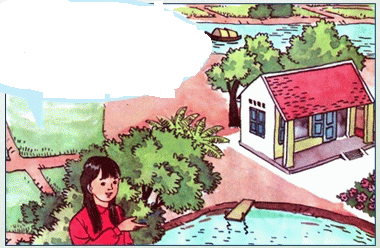
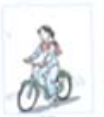



 I walk to school.
I walk to school.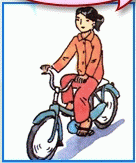

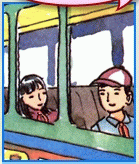


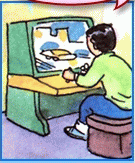
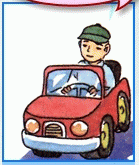
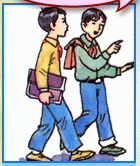
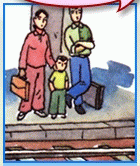



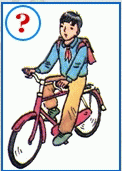
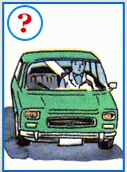
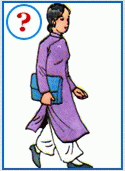
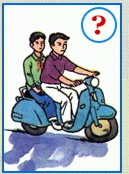
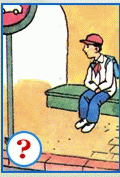
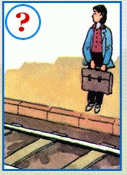
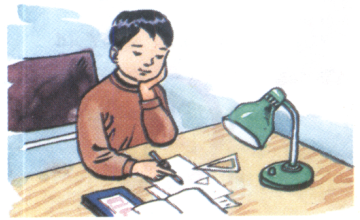



 A_
You can’t park here .
A_
You can’t park here .





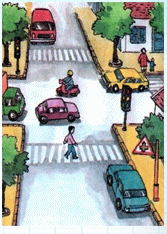

 h
h